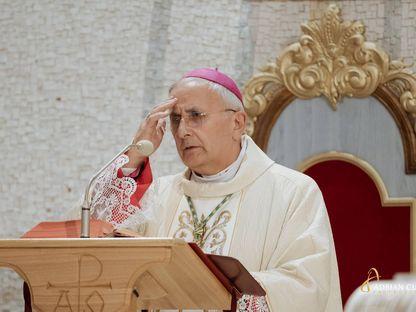At 9 a.m., with eyes red from smoke and tears, Eleni Exarchou steps out out of her house and onto the street, speaking almost absently to anyone willing to listen.
We are in Agios Georgios, a suburb lined with houses nearly reduced to rubble, where only the walls remain standing.
At 9 a.m., with eyes red from smoke and tears, Eleni Exarchou steps out out of her house and onto the street, speaking almost absently to anyone willing to listen.
We are in Agios Georgios, a suburb lined with houses nearly reduced to rubble, where only the walls remain standing.
Scorched Ruins and Soot-Covered Lives: The Aftermath of East Attica’ Devastating Fire
English Section
15/08/2024
Eleni, 69 years old, whose house suffered severe damage, hasn't yet found the strength to consider what comes next. She wanders through her home, still grappling with the reality that her entire ground floor is suddenly uninhabitable – and that only sheer luck, a shift in the wind, and a neighbor who jumped the fence with a hose saved the rest of her house.
Eleni knew the flames were approaching, but she clung to the hope that they wouldn't reach her home.
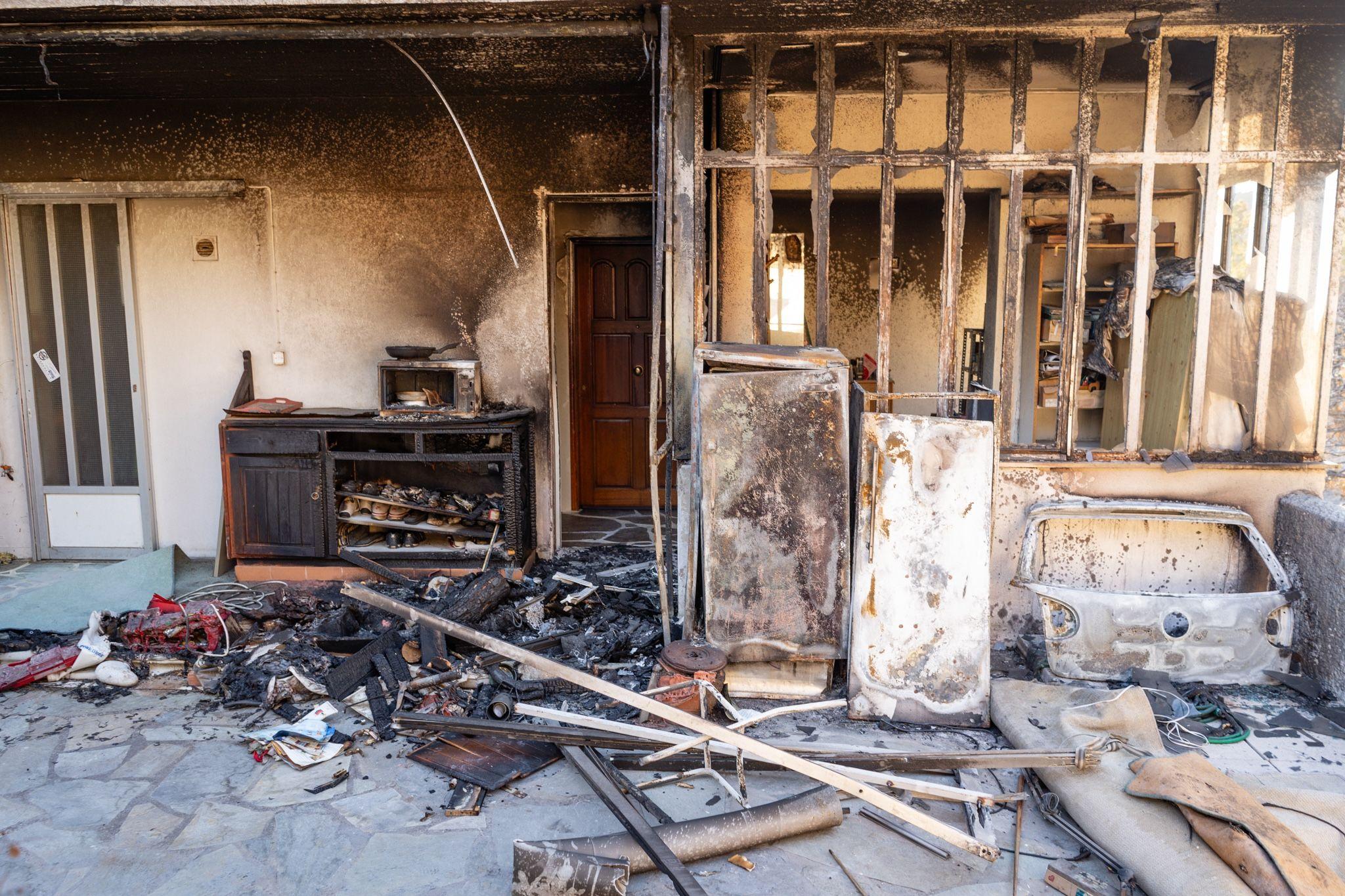
Eleni's kitchen has been reduced to rubble. Photo: Ioana Epure
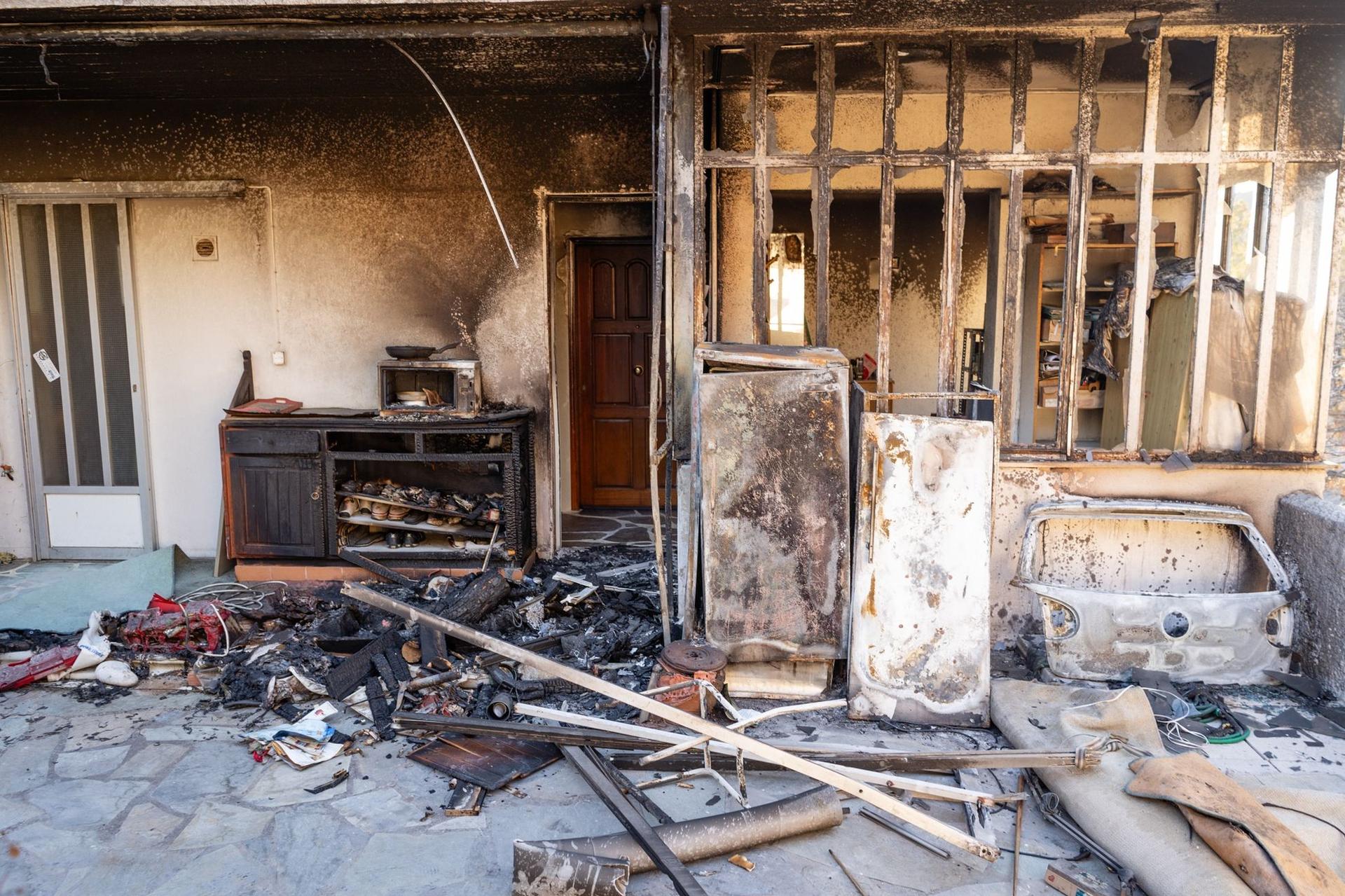
Eleni's kitchen has been reduced to rubble. Photo: Ioana Epure
"We had to leave immediately because the smoke was coming. At 5 a.m., when they told us to evacuate, we grabbed a few essential things, like water and the house papers, and left. The fire came down from the pines, burning the entire ground floor and breaking all the windows and doors. There was smoke everywhere; we couldn't do anything," she recounts.
The fire had swept through the area at midnight on Sunday into Monday. Between Sunday afternoon and Tuesday morning, residents in northern Athens received no less than 12 emergency alerts on their phones, warning them of the fire's rapid spread and urging evacuation. Never before in Greece's history had a fire come so close to the city, burning houses in neighborhoods near the center like Chalandri or Vrilissia.
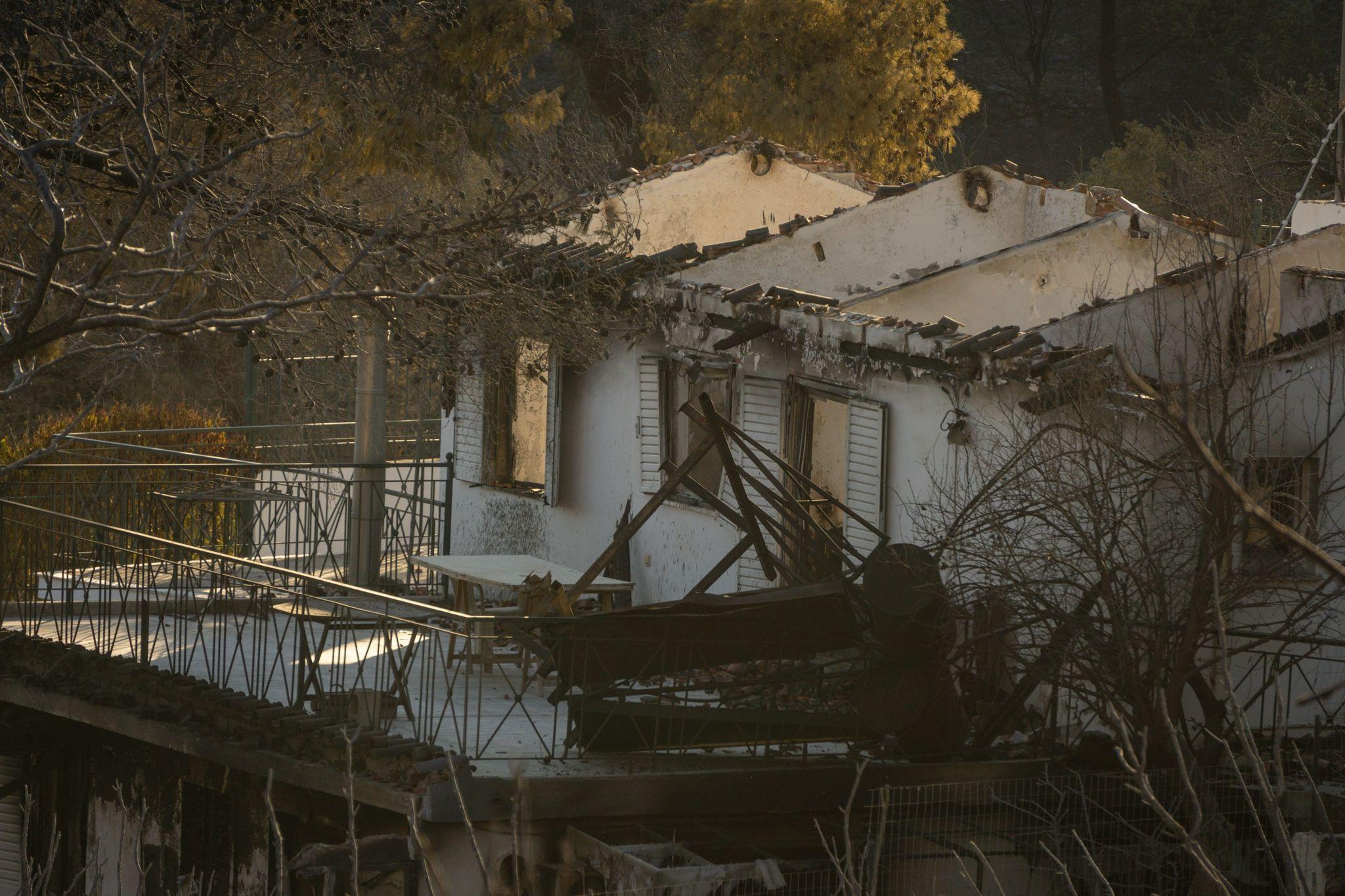
Other houses, across the street, have been destroyed completely. Photo: Ioana Epure
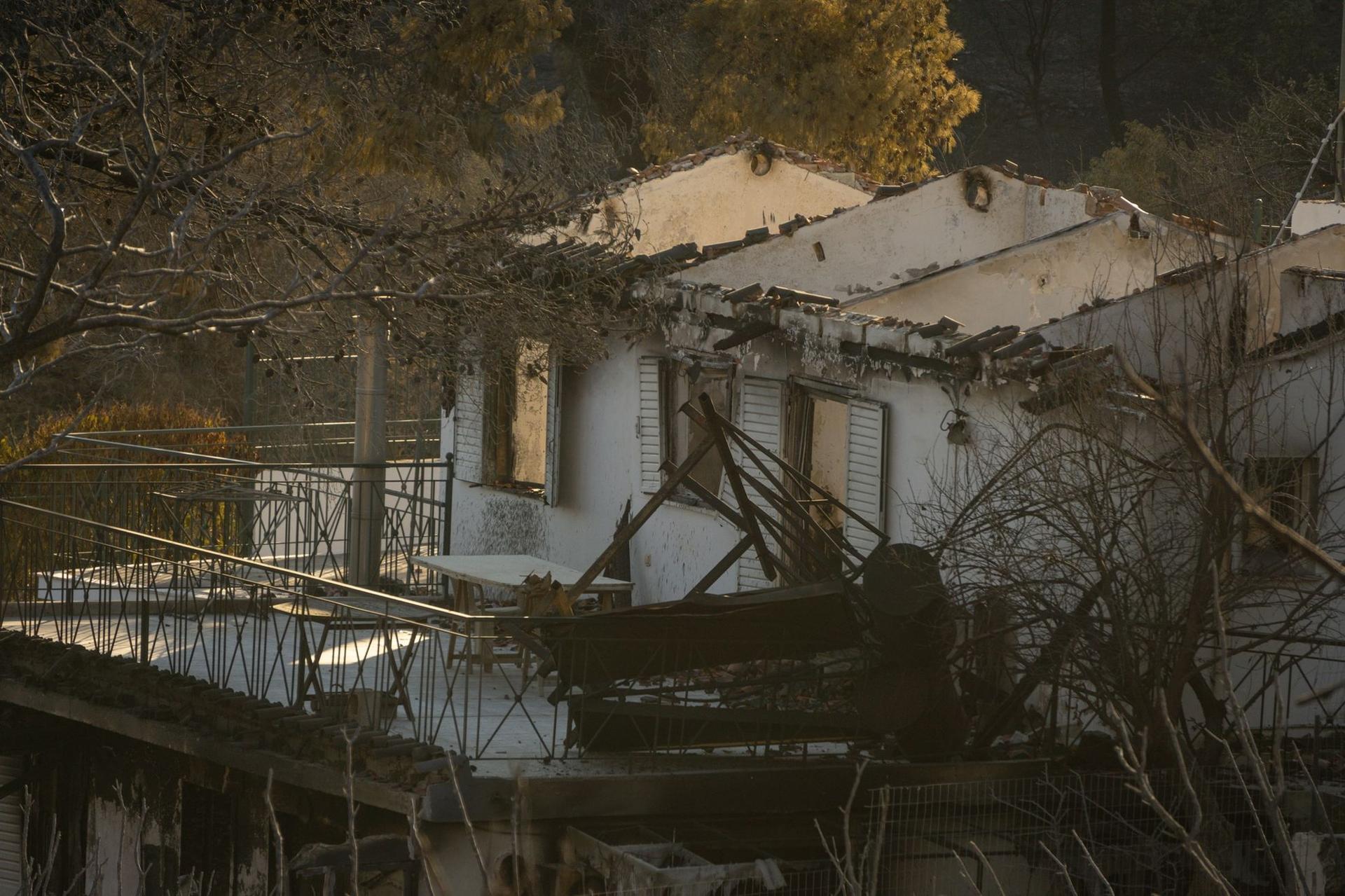
Other houses, across the street, have been destroyed completely. Photo: Ioana Epure
Upstairs, behind a window, the frail silhouette of an old man watches us suspiciously. It’s Eleni's husband, who is battling cancer.
"This house was built with the sweat of my parents and our own. Mine, my father's, my father-in-law's, and my husband's. We painted it ourselves, laid every stone. Seeing it like this breaks our hearts, it causes us pain."
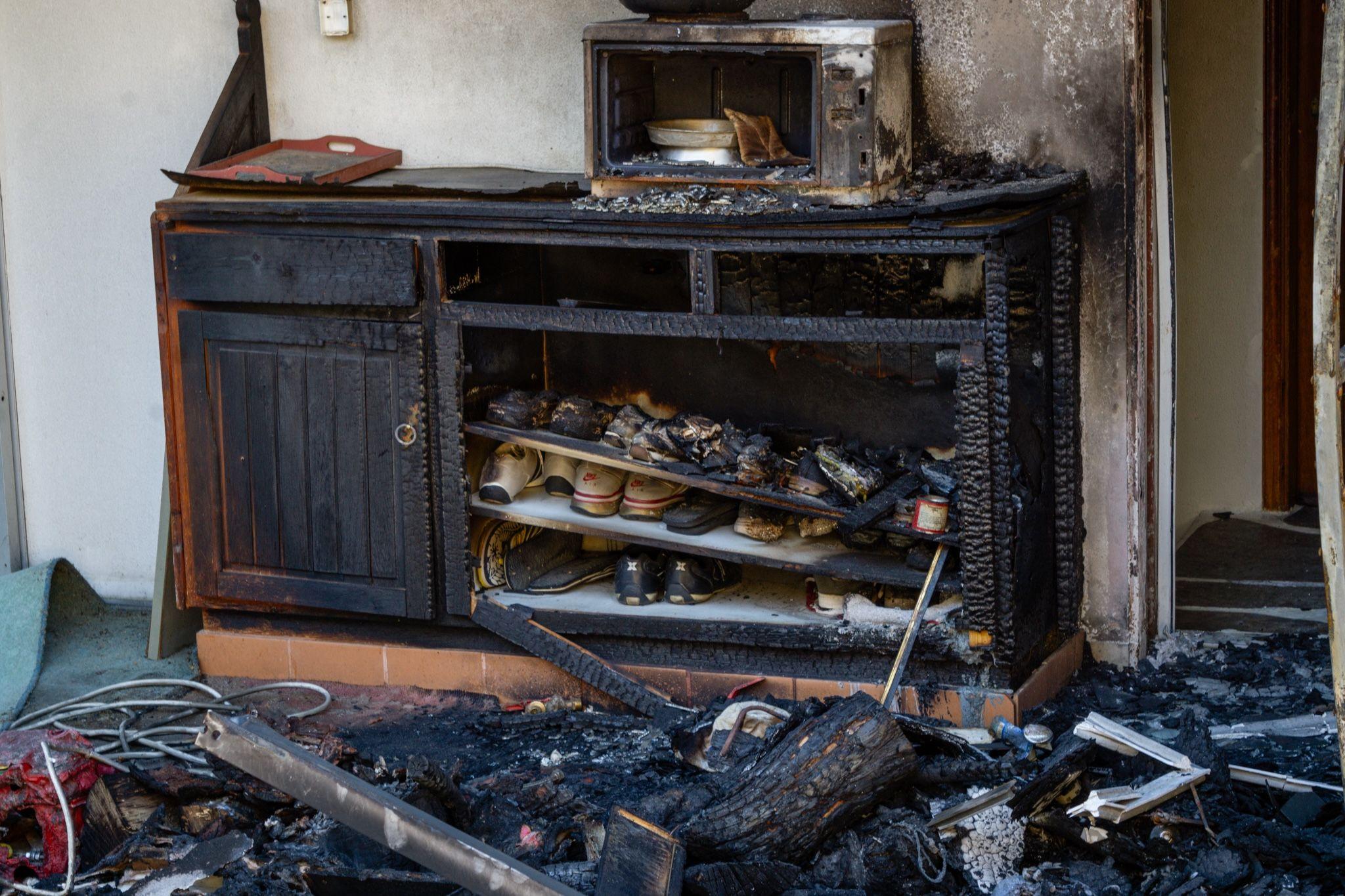
Photo: Ioana Epure
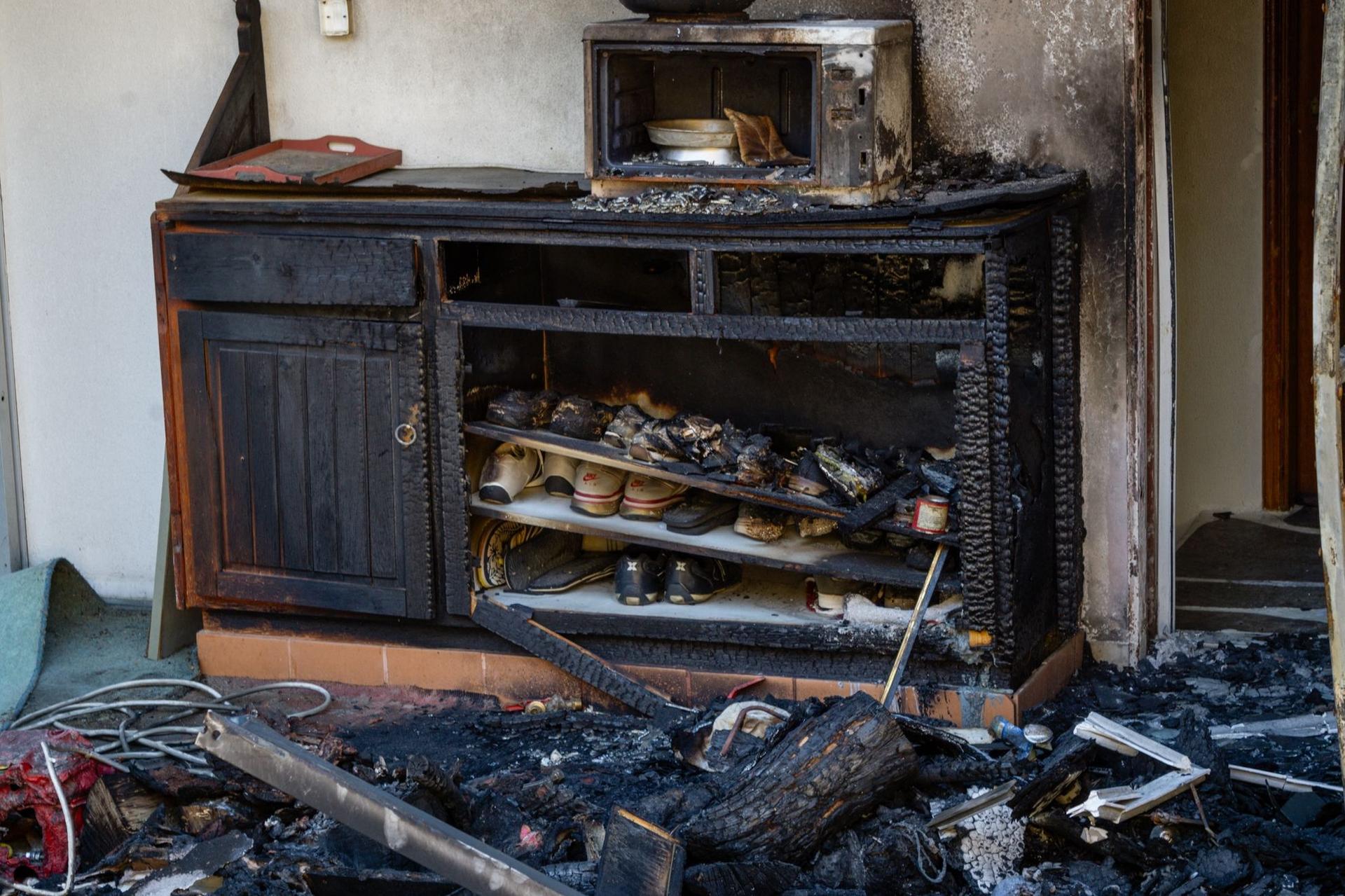
Photo: Ioana Epure
Mulți ne citesc, puțini ne susțin. Fără ajutorul tău, nu putem continua să scriem astfel de articole. Cu doar 5 euro pe lună ne poți ajuta mai mult decât crezi și poți face diferența chiar acum!
A municipal car rushes down the street.
"We have no power!" Eleni shouts. But the car speeds away without a response, leaving only dust and soot swirling in its wake.
"The indifference of all the politicians, the mayors, and the political parties – that’s all we've received. Just indifference."
The Exarchou family's house, built in 1976, had recently been renovated. It had been threatened before – but this was the first time the flames had actually touched it.
"This was the fifth time the fire came toward us, and there was nothing we could do. The smoke and flames forced us to leave. We had to leave it to fate."
Predator in Robes: The Diocese of Iași and the Vatican Buried a Sexual Assault Committed by a Catholic Priest Against a Minor in Bacău, Failing to Alert Prosecutors
A Roman Catholic priest abused a 13-year-old girl in the parish where he served in Bacău County: the bishop of Iași knew about it, sent the case to the Vatican, and applied canonical sanctions, but did not notify the authorities, who only intervened later and sentenced him to prison.
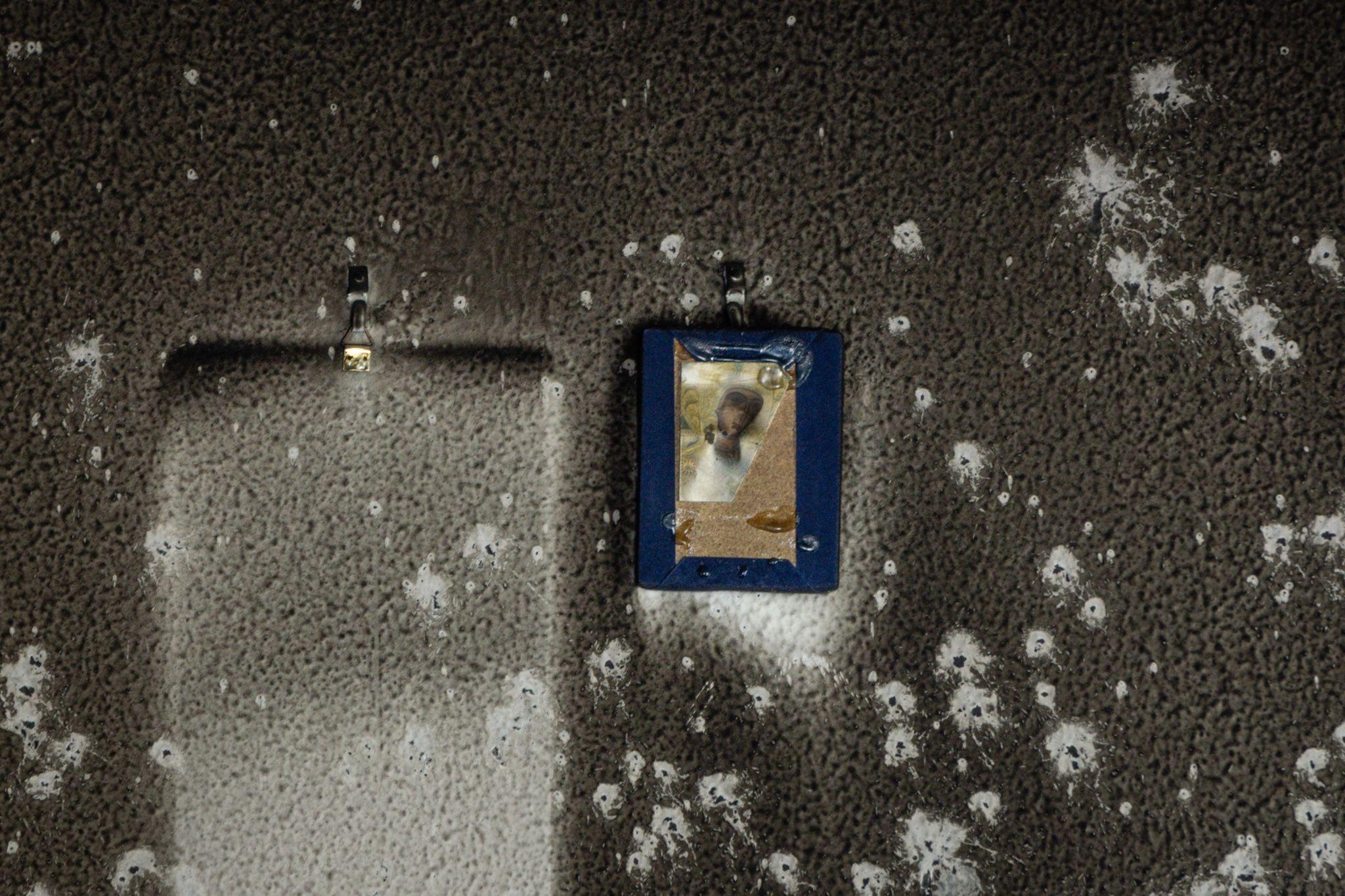
Photo: Ioana Epure
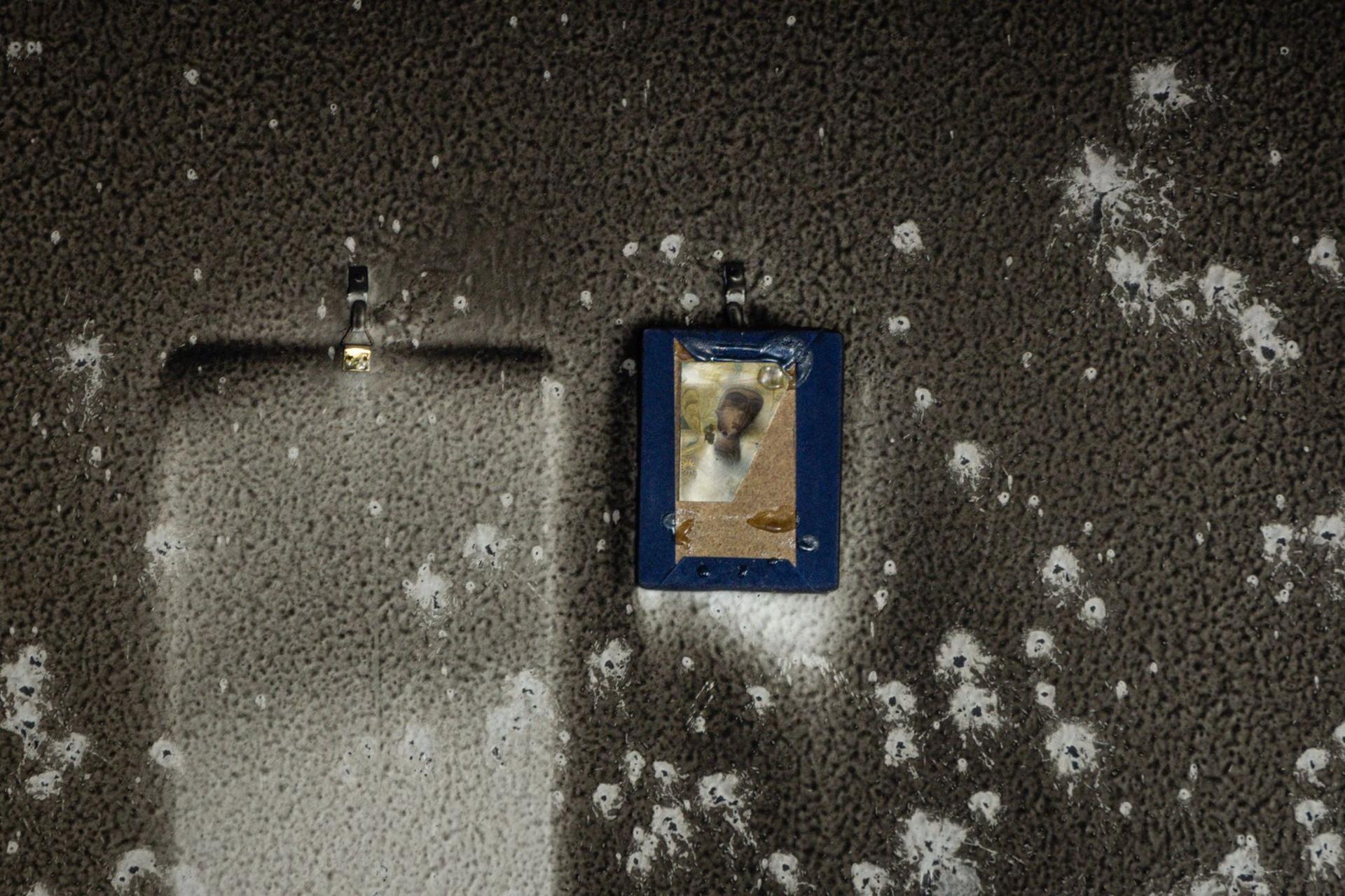
Photo: Ioana Epure
Eleni recounts how the firefighters arrived late, 12 hours after the fire had already been extinguished by a change in the wind. As she speaks, she clutches the house keys in her fist as if they were a precious treasure.
"We saved ourselves"
Un newsletter pentru cititori curioși și inteligenți.
Sunt curios
Two bottles of paint now decide the fate of the remaining homes. Yellow for those that can be repaired, red for those that must be demolished. The scene is surreal as officials from the Ministry of Civil Protection, in crisp t-shirts and caps bearing the ministry's logo, walk through the devastated villages. They stand in stark contrast to the residents, who sift through soot-covered debris with weary hands, salvaging what little remains of their lives.
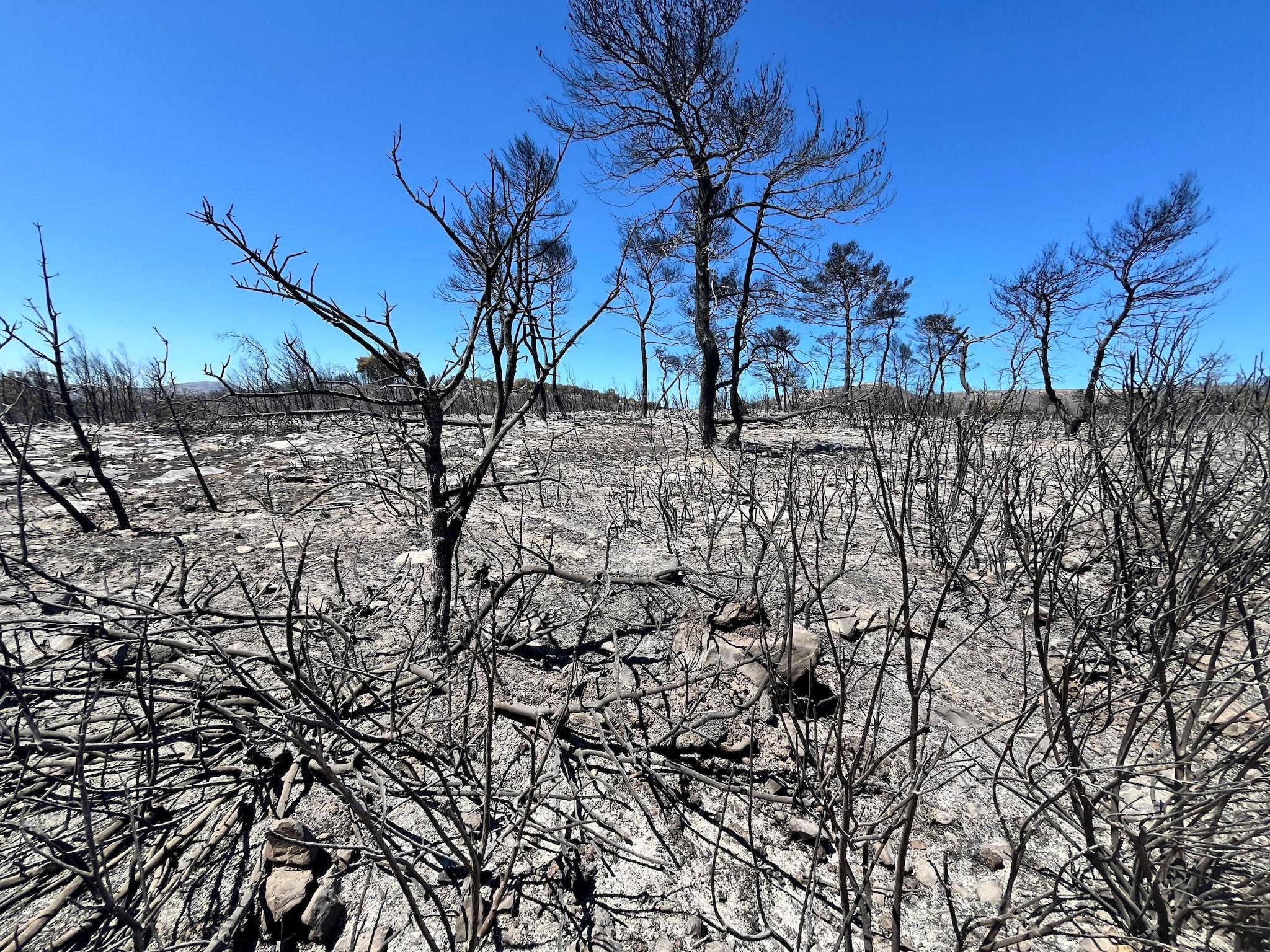
Photo: Ioana Epure
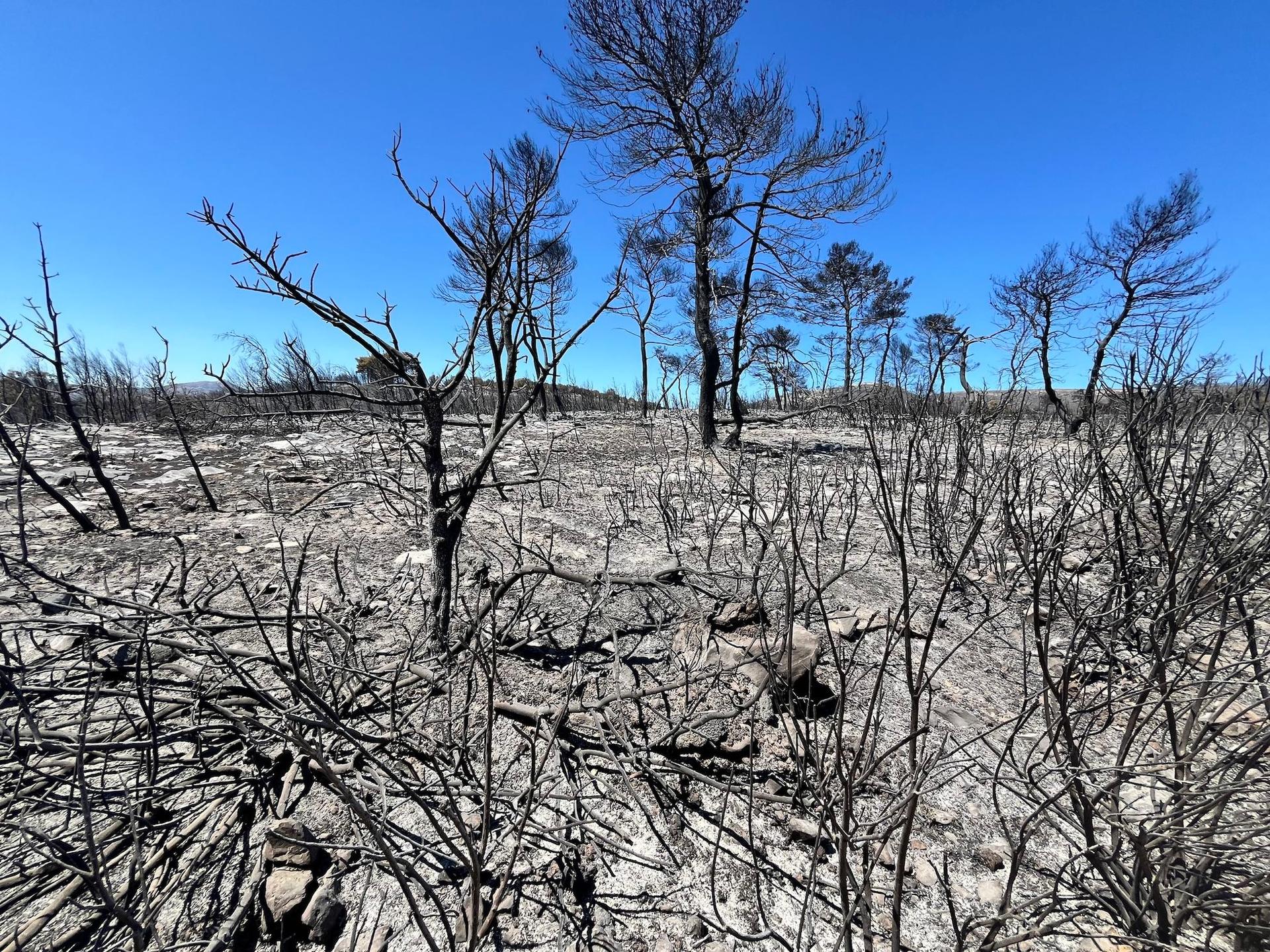
Photo: Ioana Epure
In the 12 hours we spent passing through many of the villages and towns affected by the massive fire on Sunday and Monday, we heard the story of the Exarchou family in countless variations. On the hills between Nea Makri and Marathon, Christos Masouras, 59 years old, a welder from a village near Marathon, shows us, somewhere in the valley, two houses still standing in the middle of a desert of soot and burnt tree trunks. This is the fourth fire he's lived through. "That's why we knew how to help ourselves," he says.
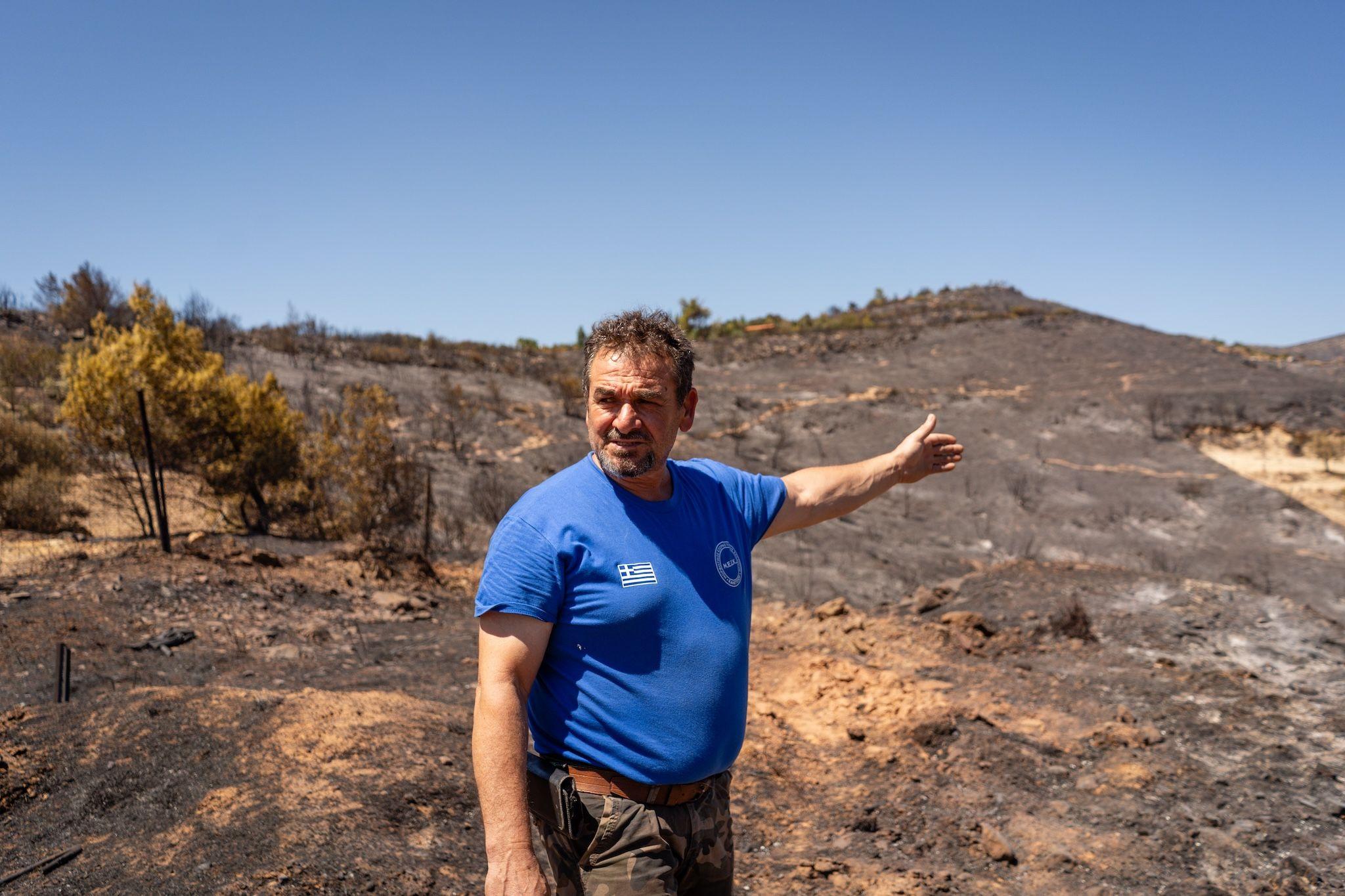
Christos Masouras, the villager from Kalentzi, Marathonas, points to the path of destruction left by the wildfire in Nea Makri, Athens, on August 13, 2024. Photo: Ioana Epure
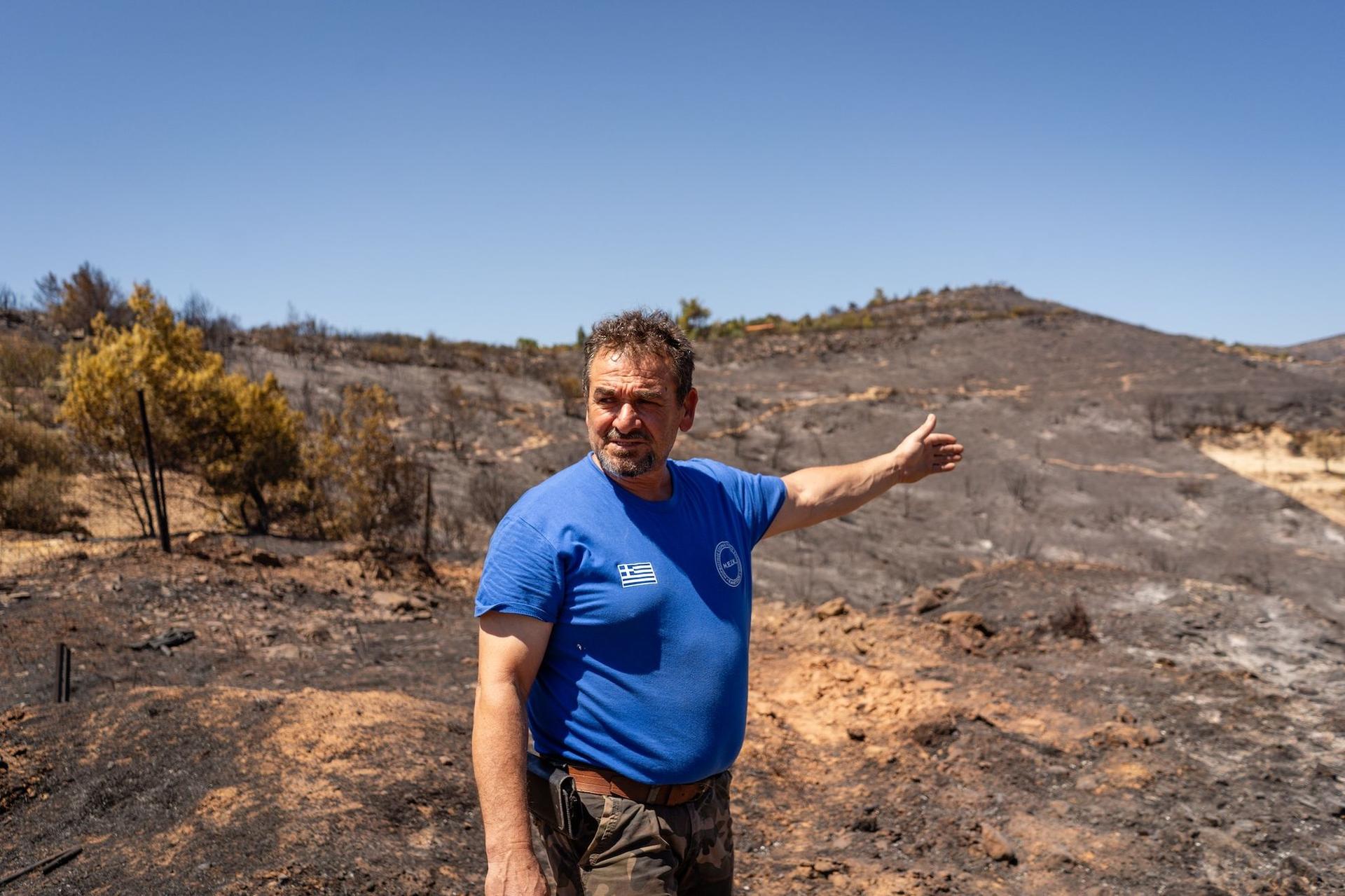
Christos Masouras, the villager from Kalentzi, Marathonas, points to the path of destruction left by the wildfire in Nea Makri, Athens, on August 13, 2024. Photo: Ioana Epure
"In those houses down there, 7-8 people live, and I am one of them. We were surrounded by fire on all sides. And we would have burned. We would have been dead, like in Mati. We received no help. We put out the fire ourselves, with our hoses. My son left the house and ran to the village. The flames were burning his back. If he had fallen while running, he would have burned. We would be having a funeral today. Today, I would have been burying my children, do you understand?"
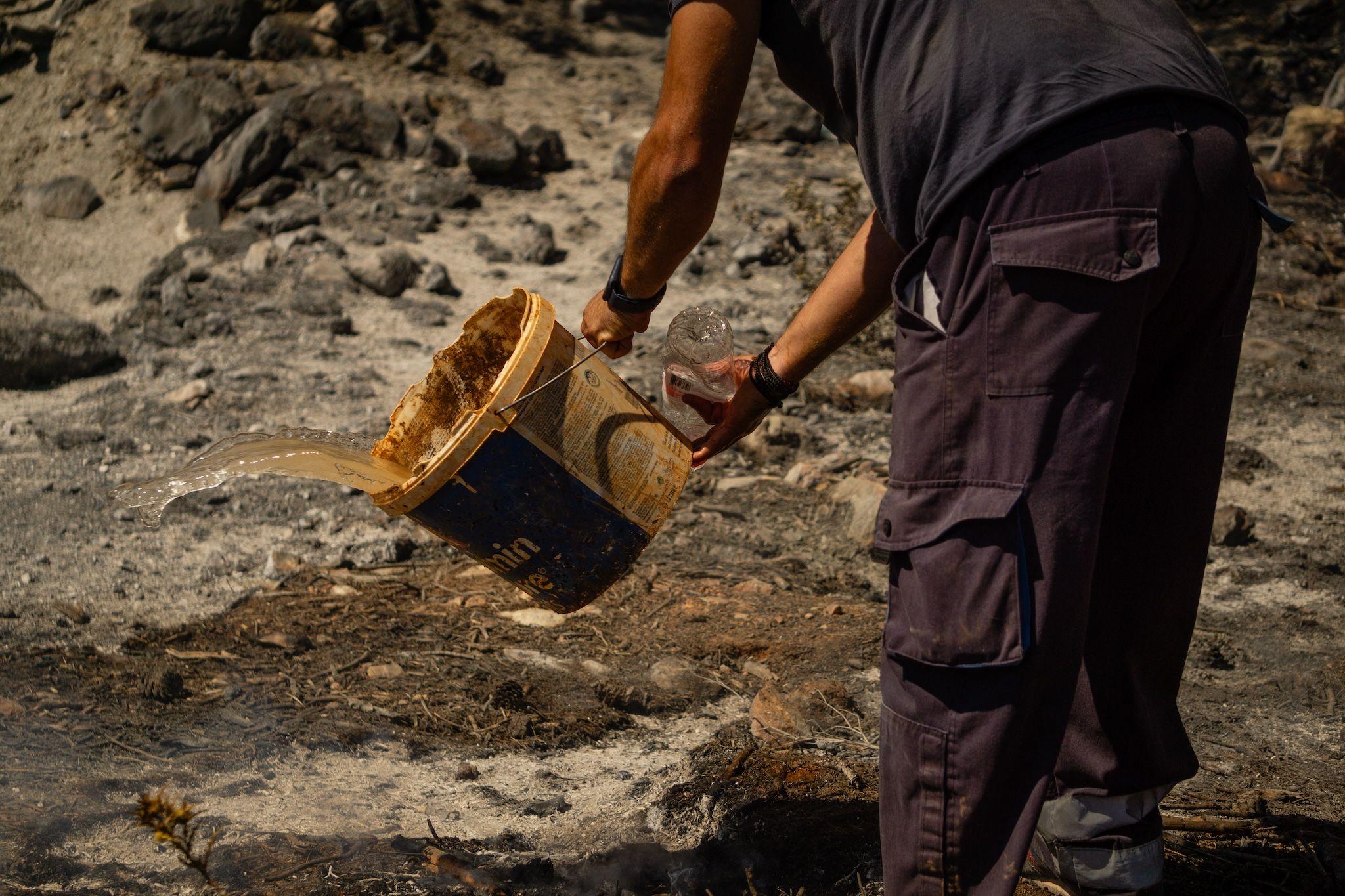
A municipal worker in Nea Makri continues to douse the ground with water, fighting to extinguish the remaining hot spots left by the destructive wildfires that have swept through East Attica since Sunday. Photo: Ioana Epure
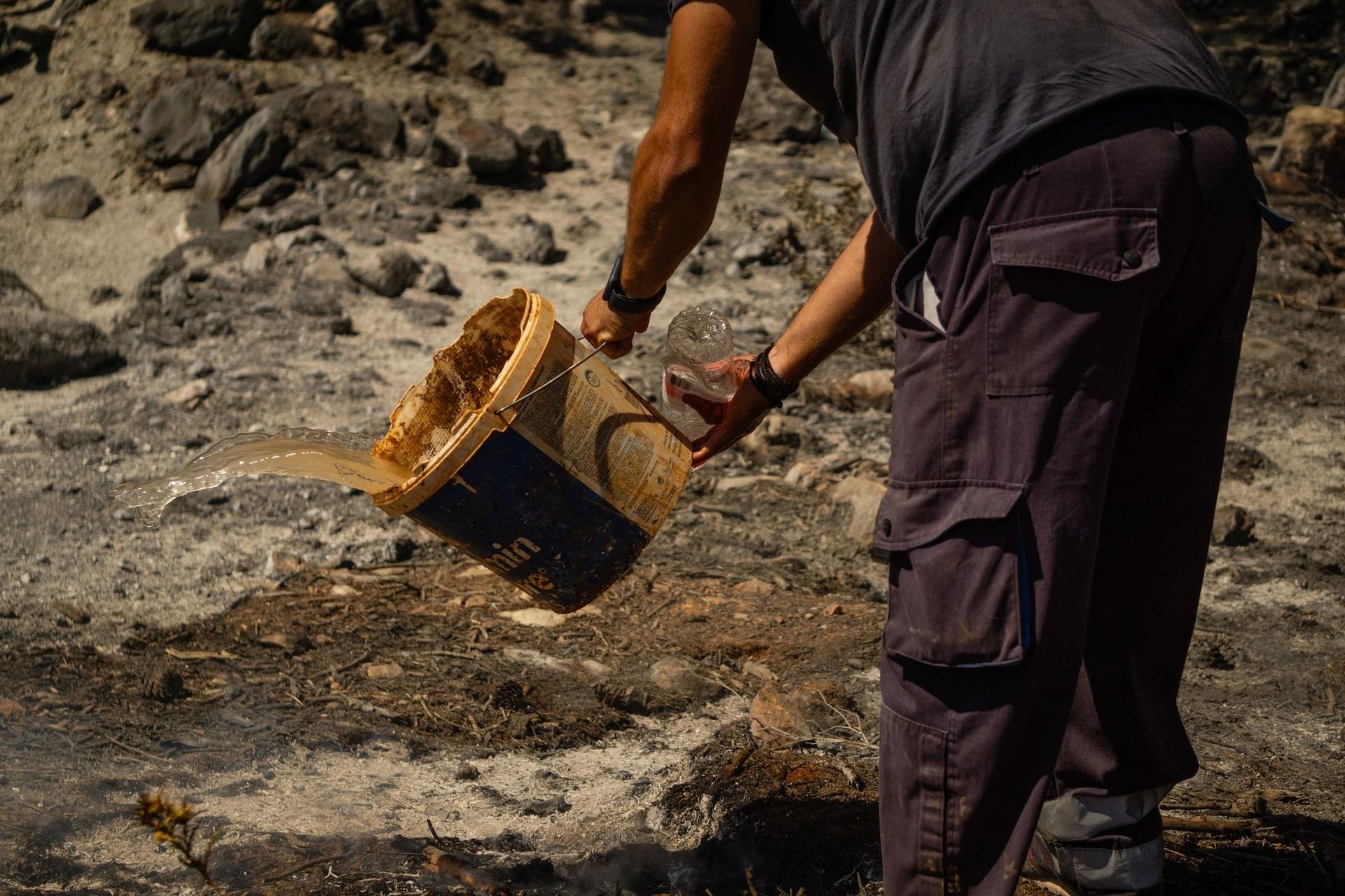
A municipal worker in Nea Makri continues to douse the ground with water, fighting to extinguish the remaining hot spots left by the destructive wildfires that have swept through East Attica since Sunday. Photo: Ioana Epure
The firefighters, Christos says, arrived after 11 hours. And for a long time, they had no water to work with. Two volunteer firefighters from the village committee (Σύλλογος Καλεντζίου) took care of putting out the fire in their area. The helicopters arrived after two days, he adds, by which time the fire in the area had already been extinguished because the winds had died down.
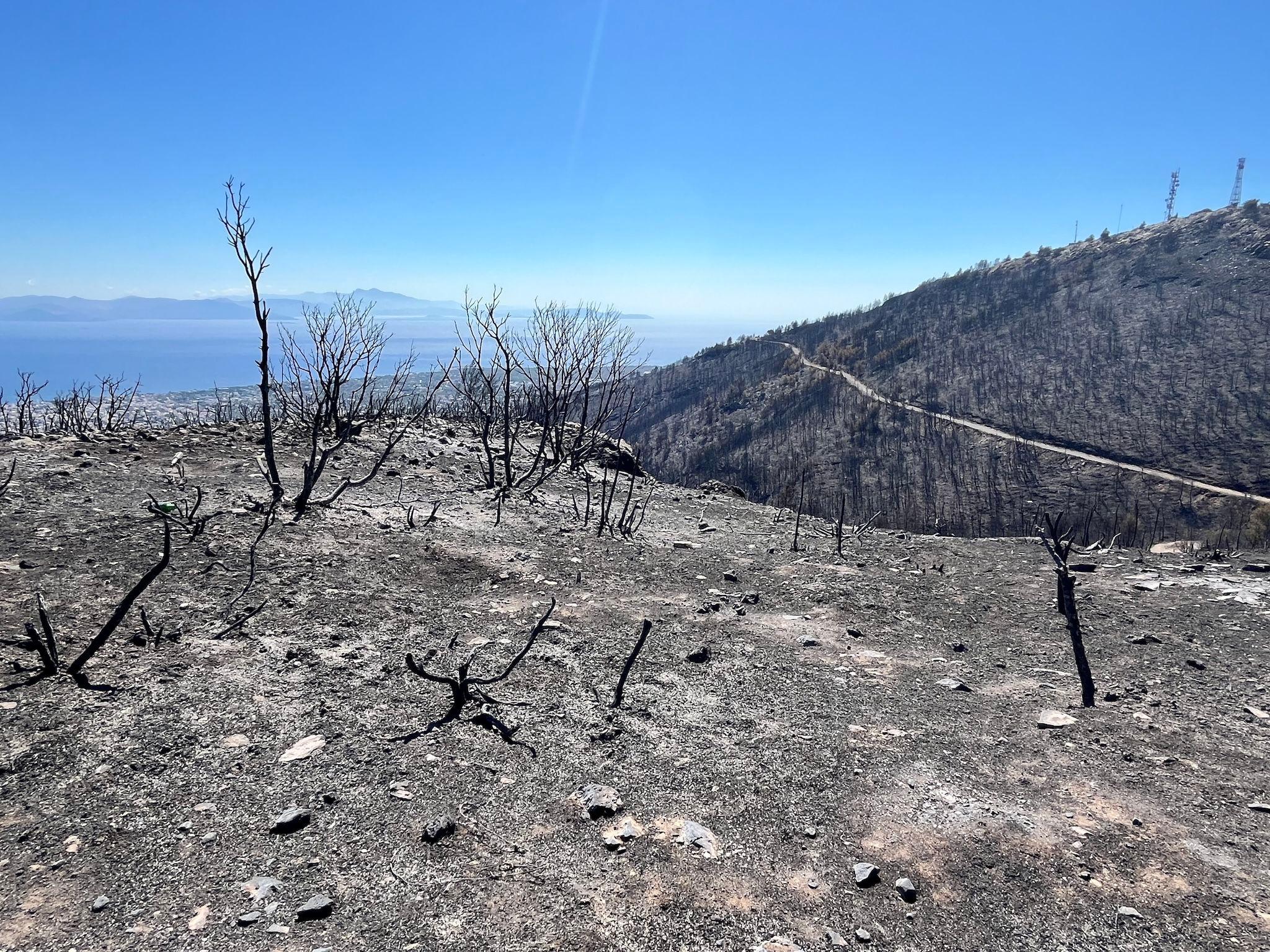
Photo: Ioana Epure
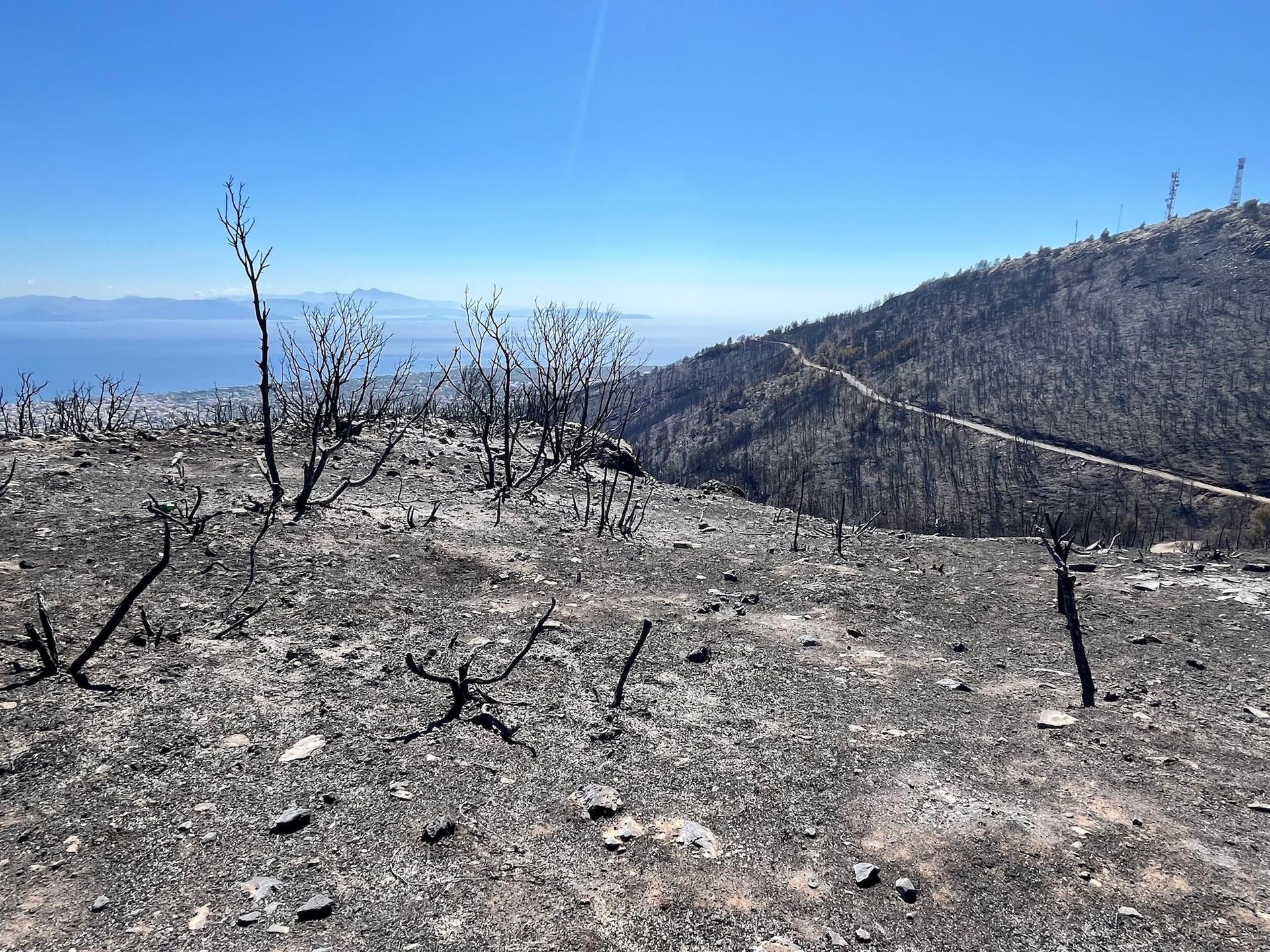
Photo: Ioana Epure
That's why the fire reached Athens, Christos explains. It's his version of the answer to the question that has been on the front pages of newspapers these days: how was it possible for the fire to enter the city? Starting in Varnava, over 20 km away, the massive fire on Sunday reached Athens in less than 24 hours, within the city's perimeter.
"Kikilias (the Greek minister of Civil Protection nr.) should resign! The state was absent. This shouldn't have happened. There was no coordination. Nobody organized the intervention. Firefighters came from all over Greece and didn't know the roads, and there was no one to organize them. There was no coordination."
Flames the size of an 8-story building
On the beach in Nea Makri, under the eyes of tourists lounging on sunbeds, fire-fighting helicopters come from the mountains, load up with water from the sea, and fly back, trying to extinguish the last remaining fires and prevent new ones from starting.
The National Observatory of Greece reported that the fire had destroyed approximately 10,000 hectares of land. In Vrilissia, less than 10 kilometers from downtown Athens, a woman was found dead. Over 100 houses were affected by the fire that broke out on Sunday. Greece has managed over 3,500 fires since the beginning of May, an increase of nearly 50% compared to the same period in 2023. In Vrilissia, less than 10 kilometers from the center of Athens, a woman was found dead. More than 100 homes were affected by the flames of the fire that broke out on Sunday.
However, people say that when the flames were burning around them and the fire was spreading almost unbelievably fast toward the city, those same helicopters that now fill the sky were nowhere to be found.
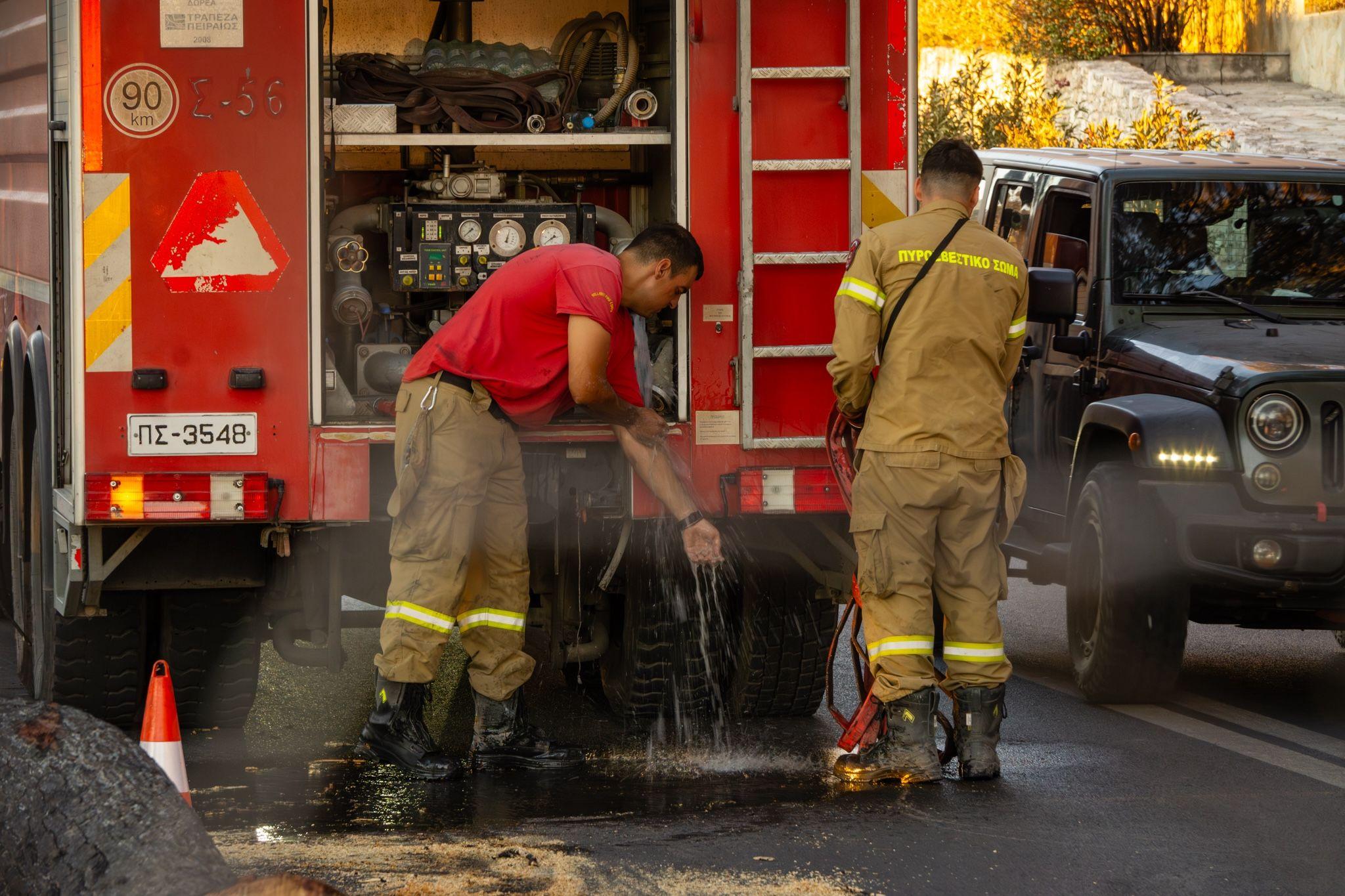
Photo: Ioana Epure
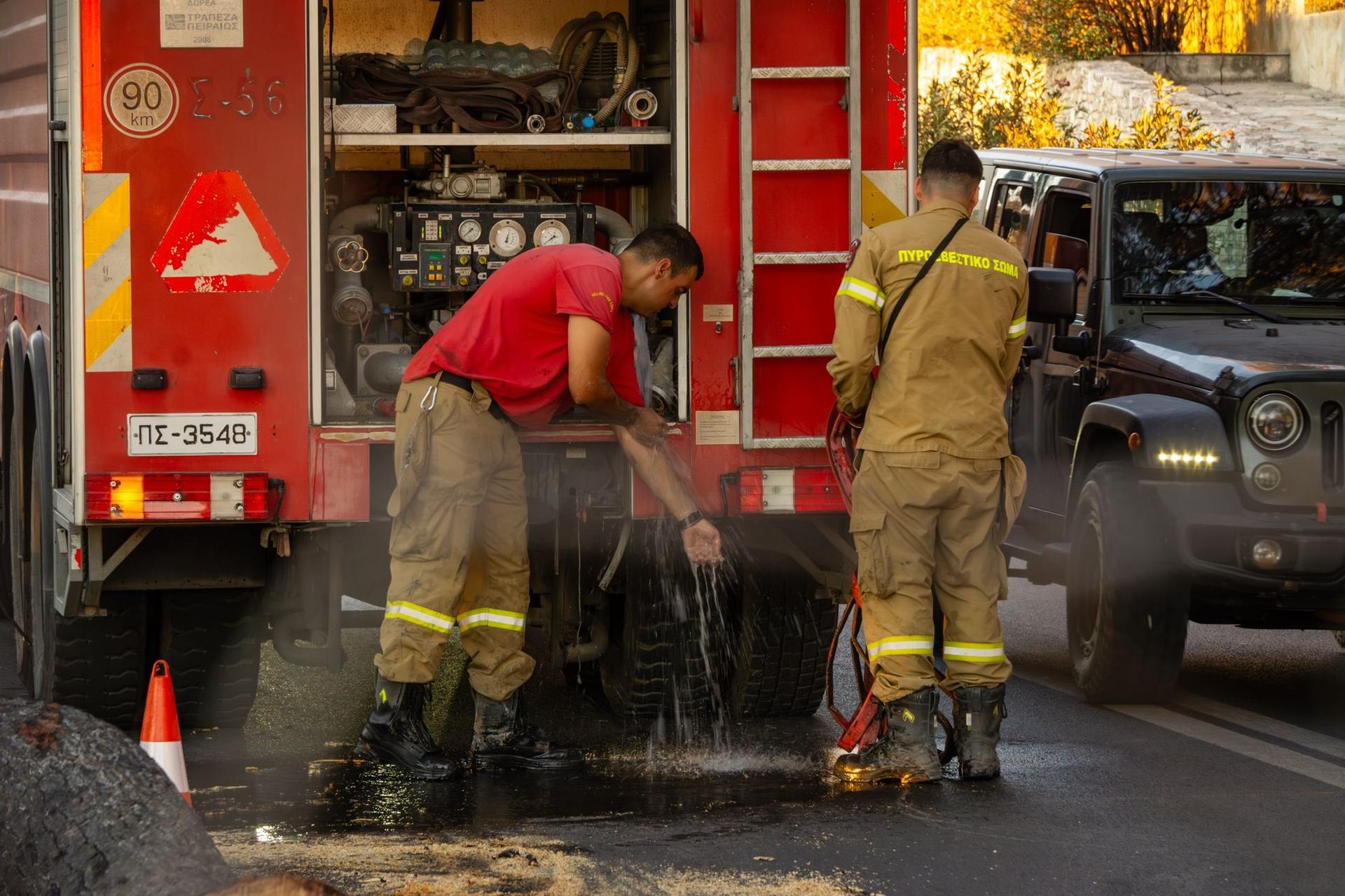
Photo: Ioana Epure
On their side, firefighters say that extinguishing the fire would have been extraordinarily difficult. Denis Burada, 32, is one of the Romanian firefighters who participated in the operation on Sunday and Monday. This is the fourth year that Romania has sent personnel and equipment to control the fires in Greece through the European Civil Protection Mechanism. 40 firefighters arrived in the first group, and another 44 left Romania on Tuesday morning, along with 4 technical units.
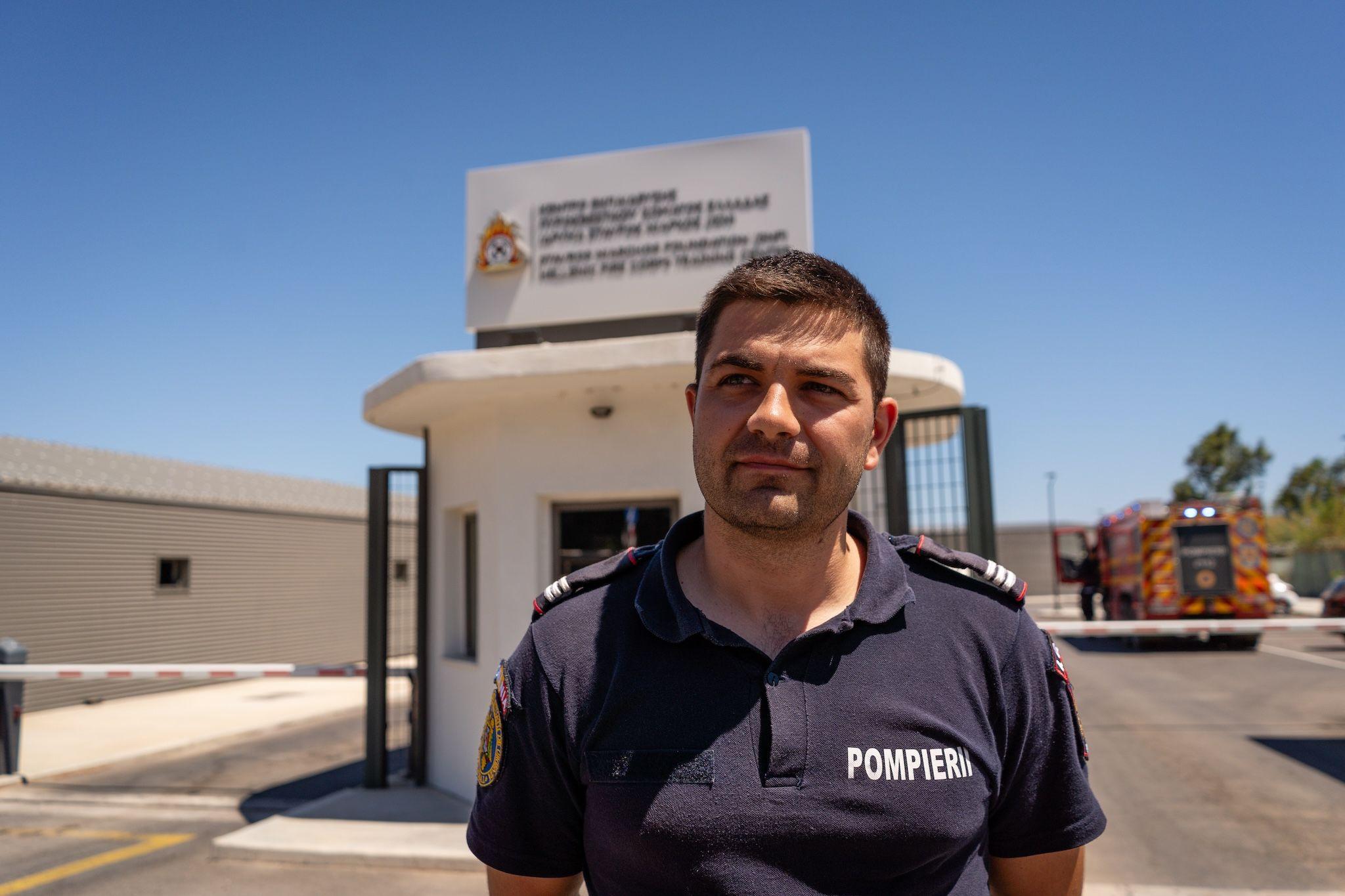
A Romanian firefighter stands outside the fire station in Nea Makri, Athens, on August 13, 2024, after assisting in the ongoing battle against the wildfire that broke out in East Attica on Sunday. Photo: Ioana Epure
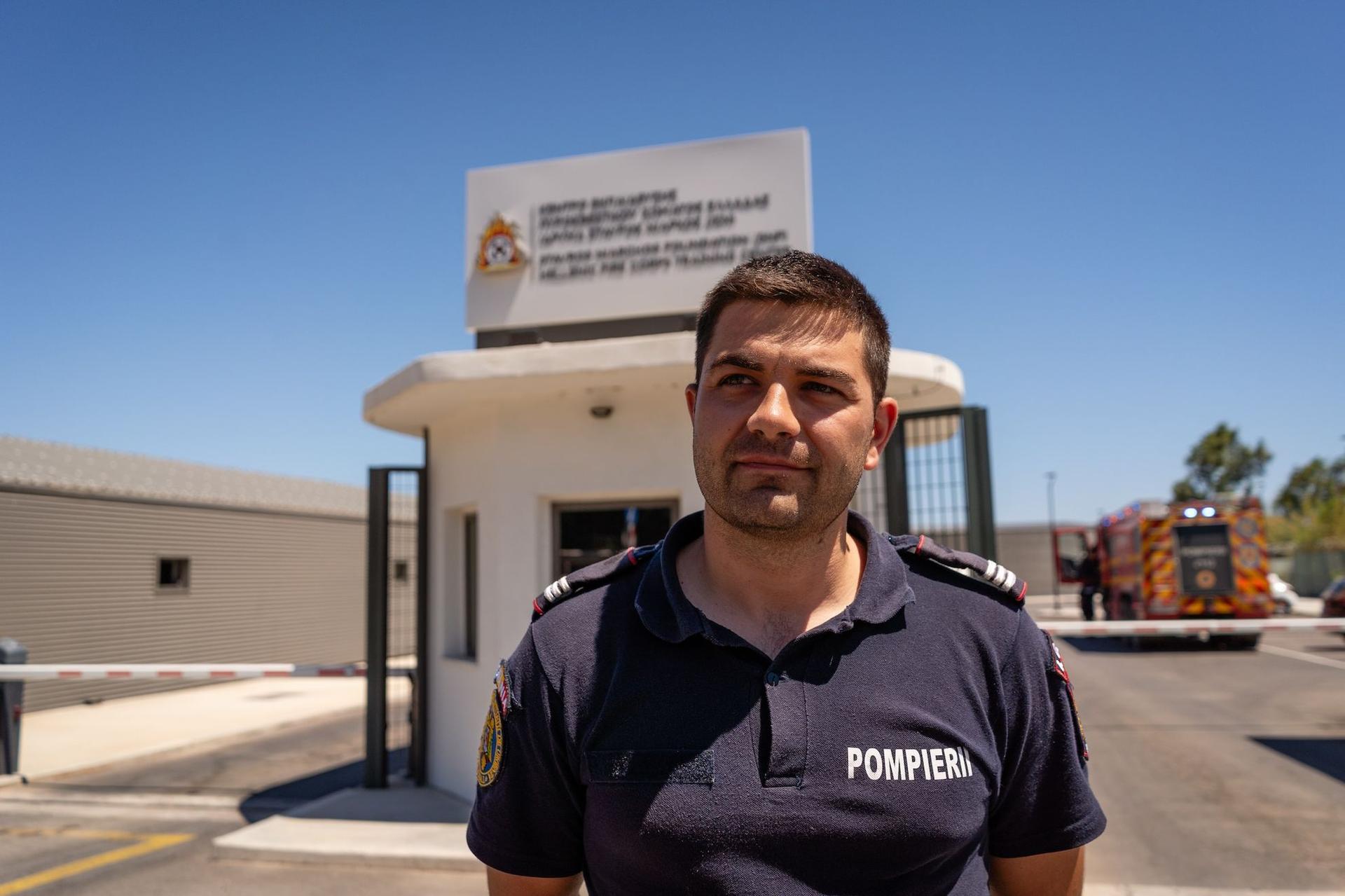
A Romanian firefighter stands outside the fire station in Nea Makri, Athens, on August 13, 2024, after assisting in the ongoing battle against the wildfire that broke out in East Attica on Sunday. Photo: Ioana Epure
On Tuesday, at noon, Denis was just finishing a 12-hour shift. He says that fires in Greece are extremely complicated compared to those in Romania because forests burn in Greece, and the winds are extremely strong. The flames can reach up to 25 meters in height, equivalent to an 8-story building.
On either side of the winding roads that connect the towns and villages in the northeast of Athens, from Nea Makri to Agios Stefanos, the landscape is almost apocalyptic. Kilometers of burned tree trunks, soot, smoke still rising from small smoldering spots – which people are now extinguishing with buckets under the sweltering midday heat.
But nothing prepares you for the sight of the Marathon Dam, once surrounded by forests, now nothing more than a concrete wall in a lunar landscape. Fire trucks pass by occasionally. The cicadas have fallen silent.
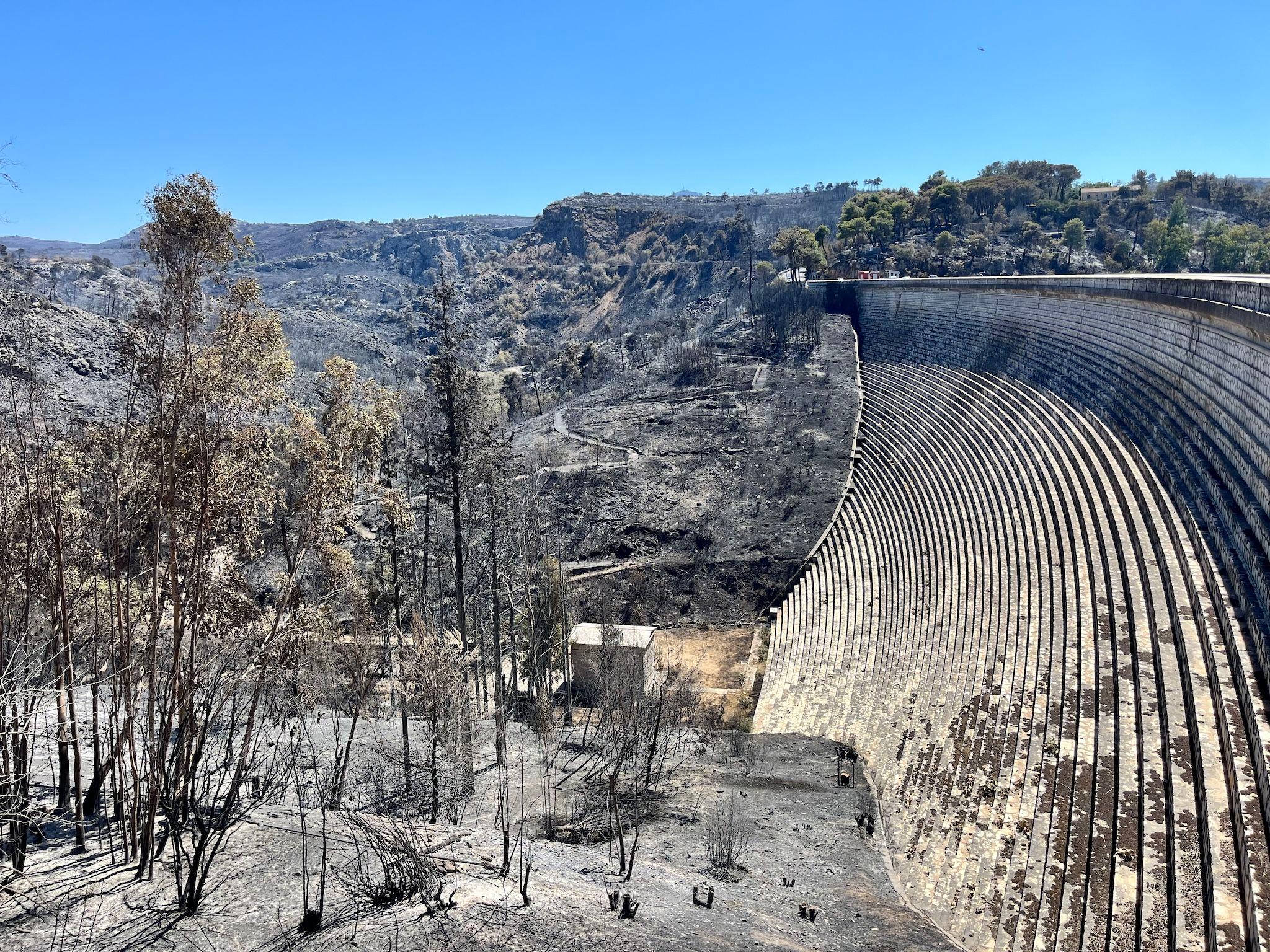
Marathon dam. Photo: Ioana Epure
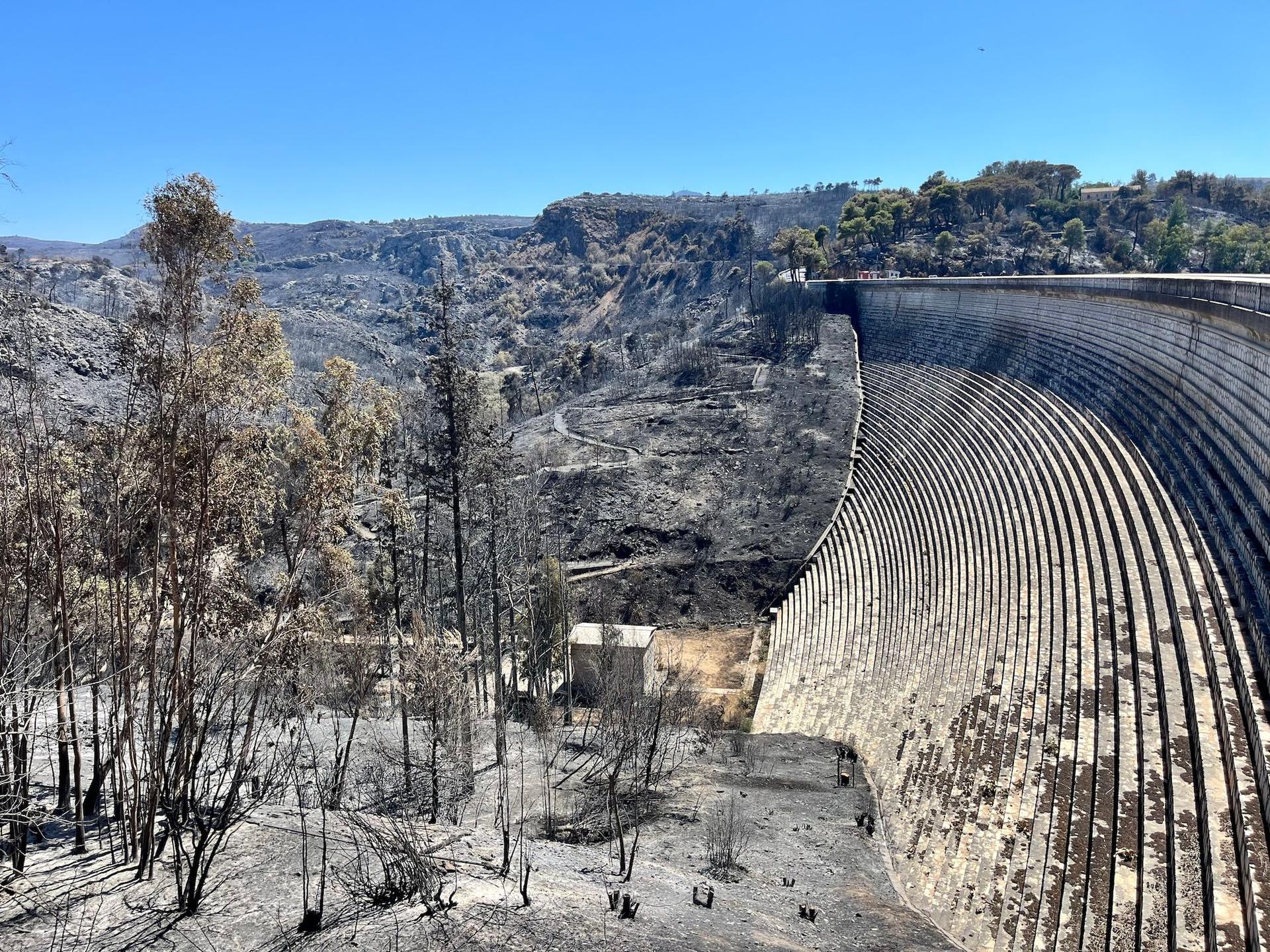
Marathon dam. Photo: Ioana Epure
"This is the Greek reality. We don't live; we survive"
As the afternoon settles in, people in the villages begin to return, one by one, cautiously stepping into their burned-out homes and trying to piece together plans for the future. After all, there's little choice but to move forward. The Exarchou family understands this well – Eleni's two sons, Iannis and Nikos, along with her daughter-in-law, Marilena, work determinedly at sunset, hauling buckets of burnt debris.
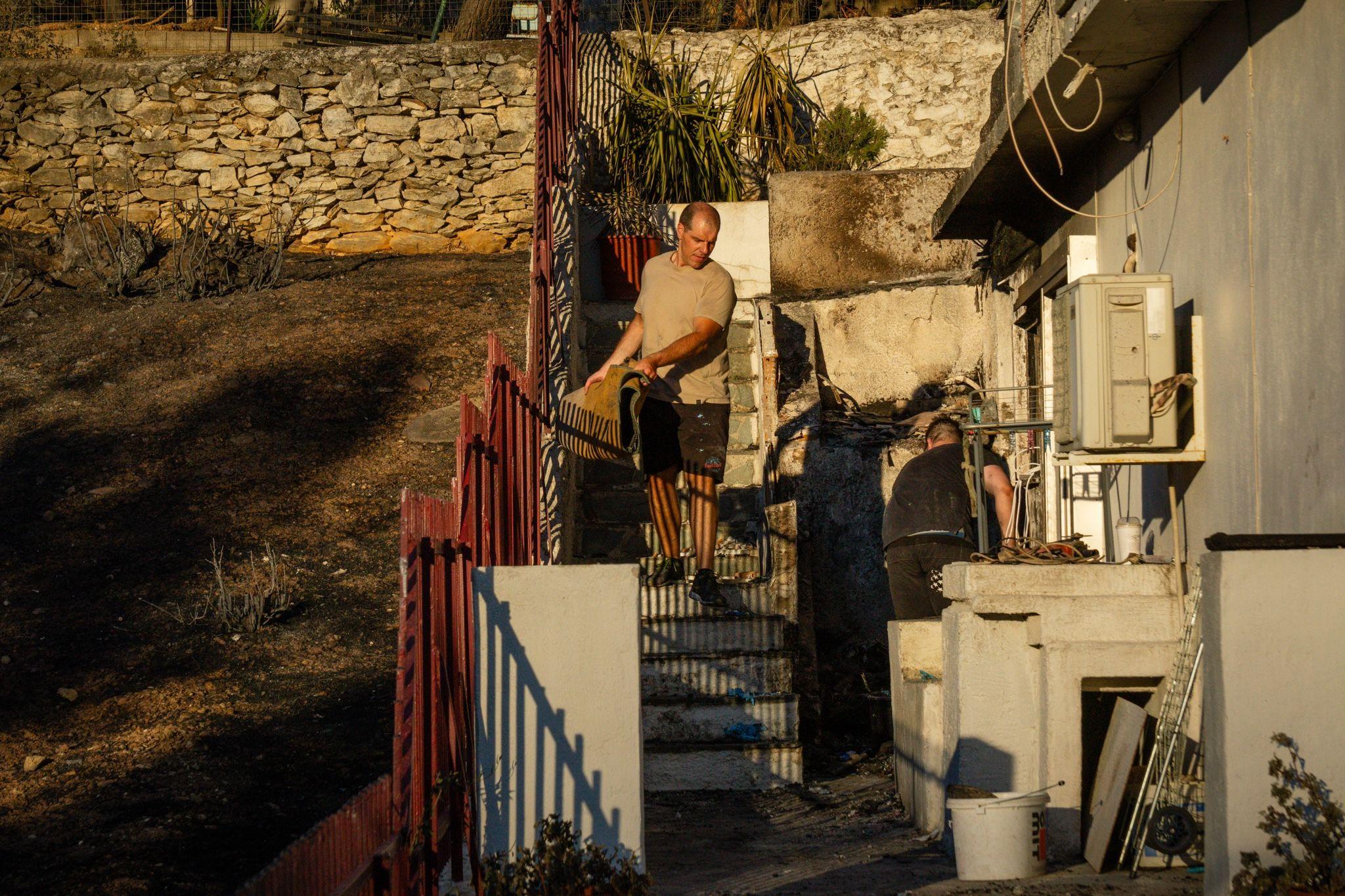
Iannis and Nikos, Eleni's sons, have already started to rebuild their parents' house. Photo: Ioana Epure
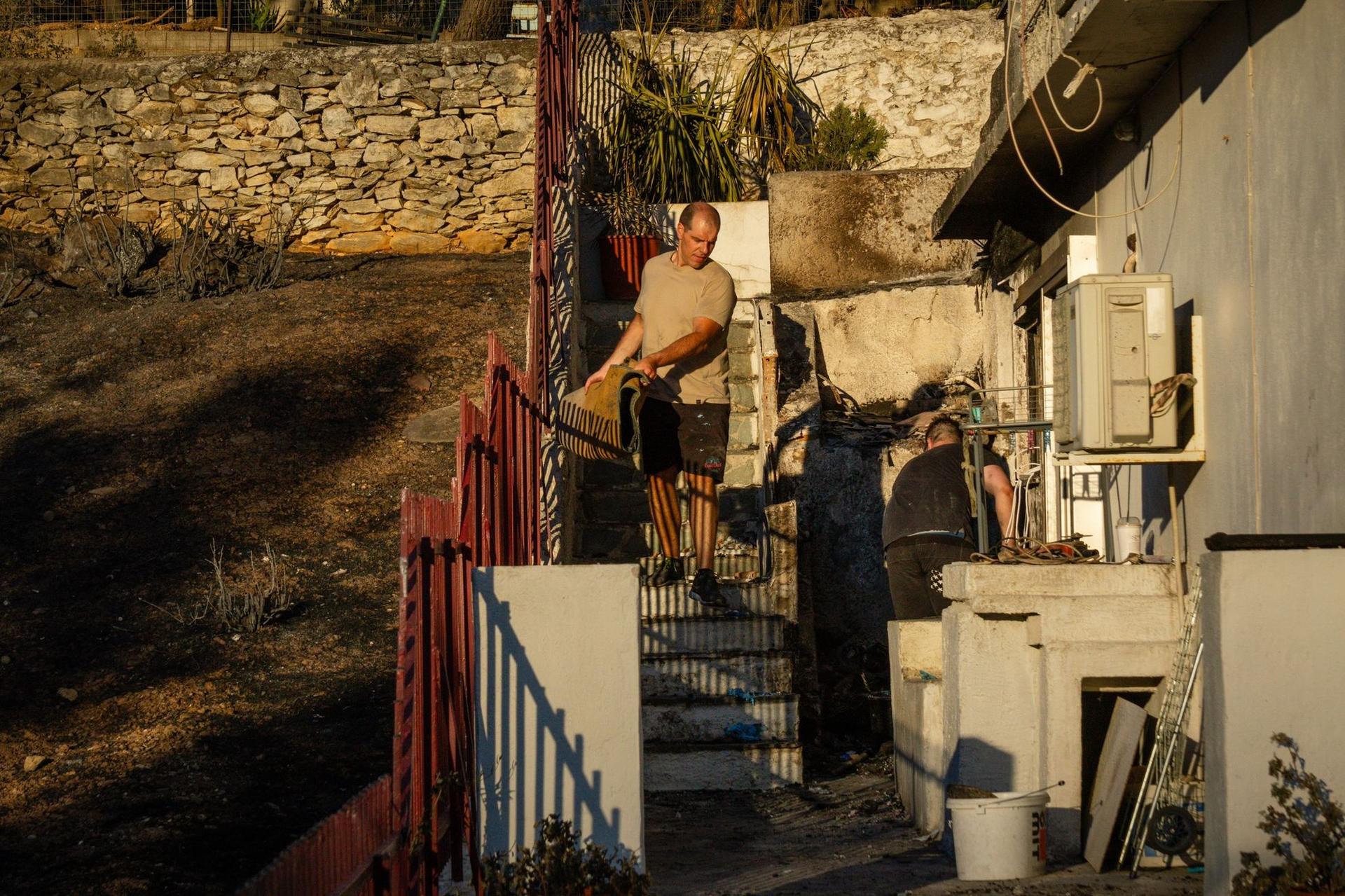
Iannis and Nikos, Eleni's sons, have already started to rebuild their parents' house. Photo: Ioana Epure
The fire caught Marilena while she was on vacation in Ioannina – she had to rush back to Athens to help her in-laws. Now, she's covered in soot from head to toe, her beautiful nails the only proof of her leisure days. She says she spent all of Monday in tears. Her eyes are red from smoke and exhaustion, her hands are hidden behind rubber gloves as she nostalgically recalls her time studying in Scotland and working in Brussels, places where "things are in order."
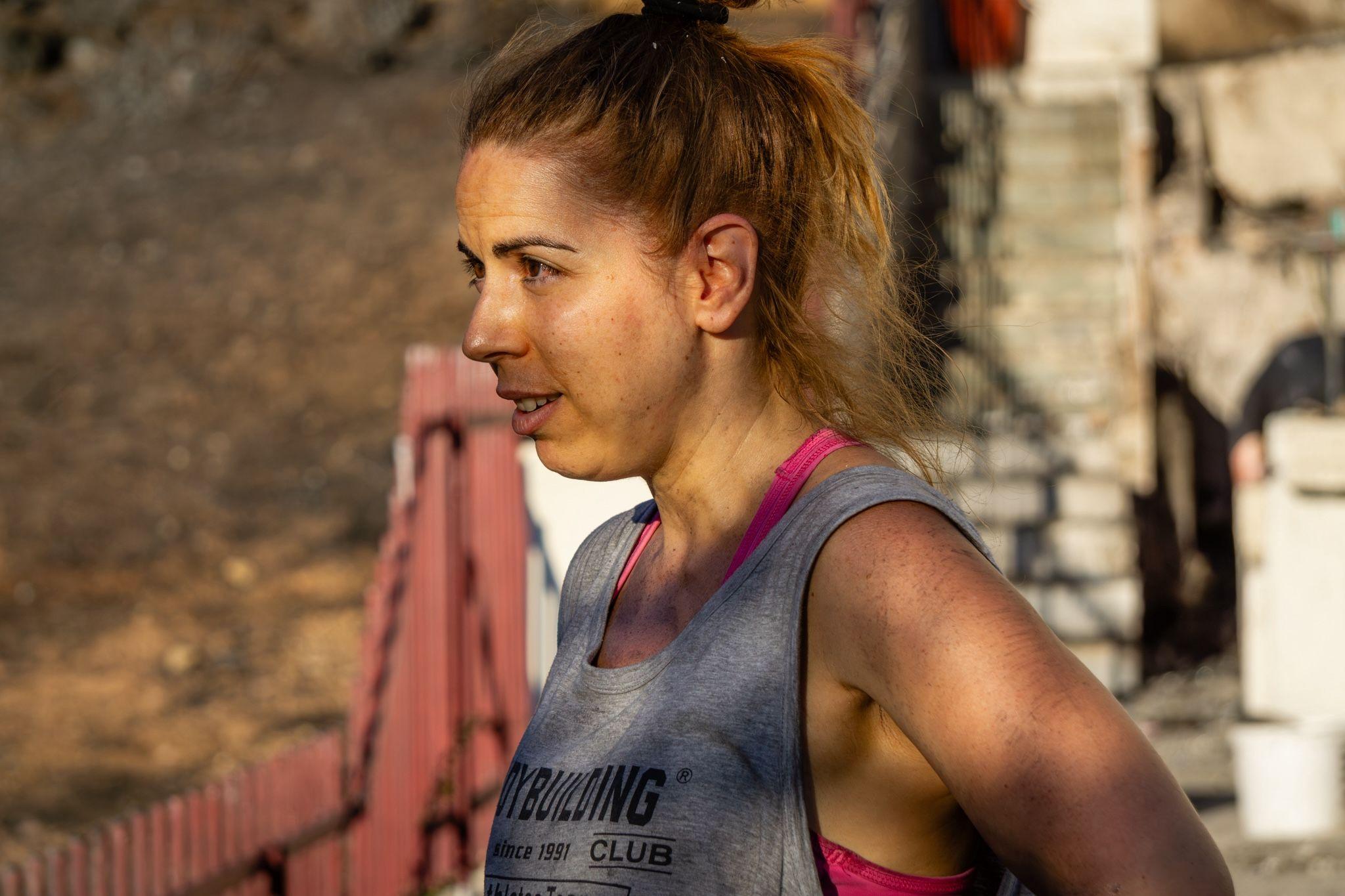
Marilena. Photo: Ioana Epure
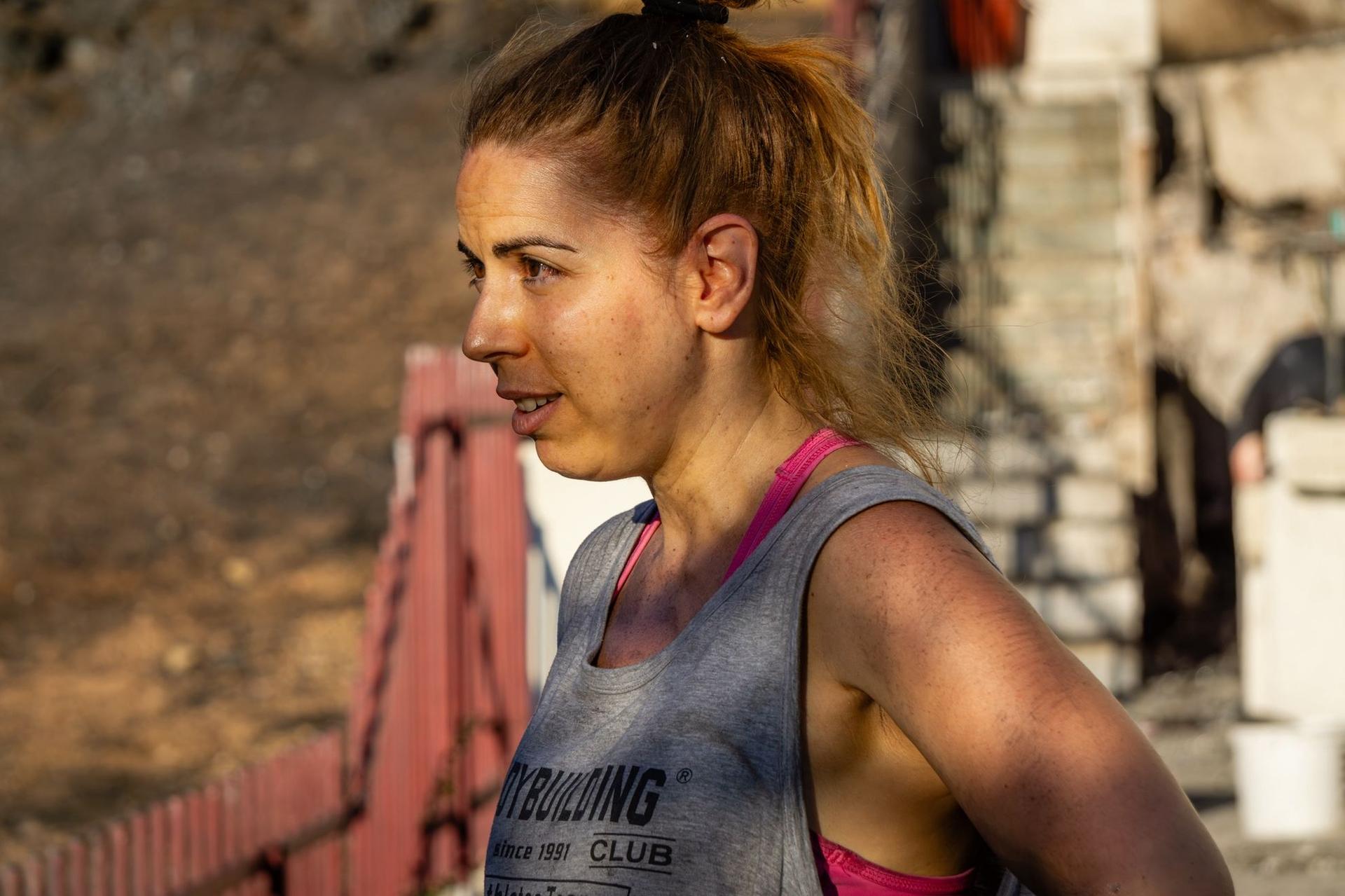
Marilena. Photo: Ioana Epure
"When you have suburbs with trees, you build the infrastructure to ensure access in case of a fire. And you stay prepared. As you can see, some houses here were saved only because of the wind, not because of preventive measures. The only good preventive step they took was the phone alarm that told us to evacuate. That's the only thing the government did – tell people to evacuate. We're on our own. They came just to record the damages. And I have no idea when or how much compensation we might receive."
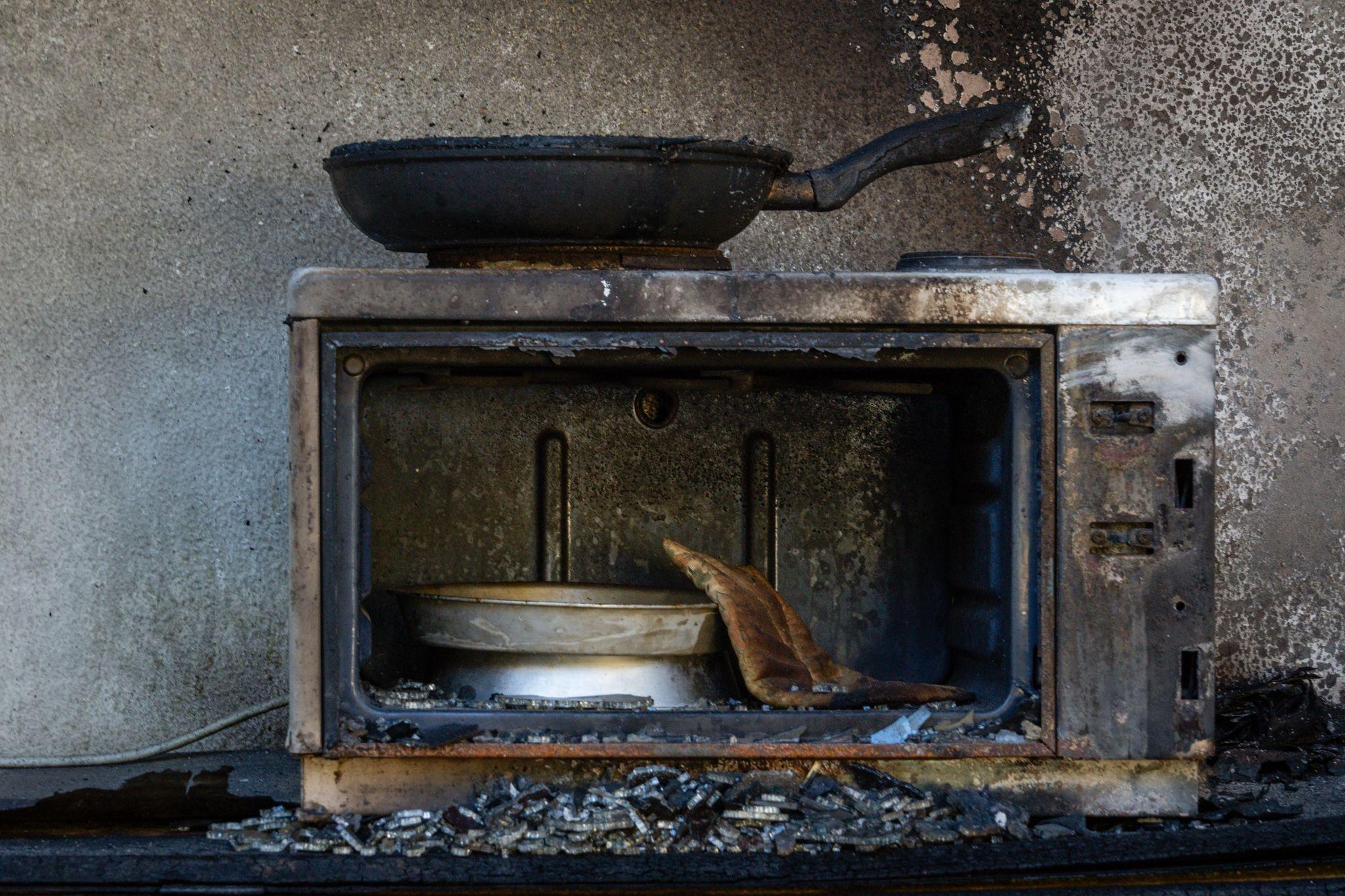
Photo: Ioana Epure
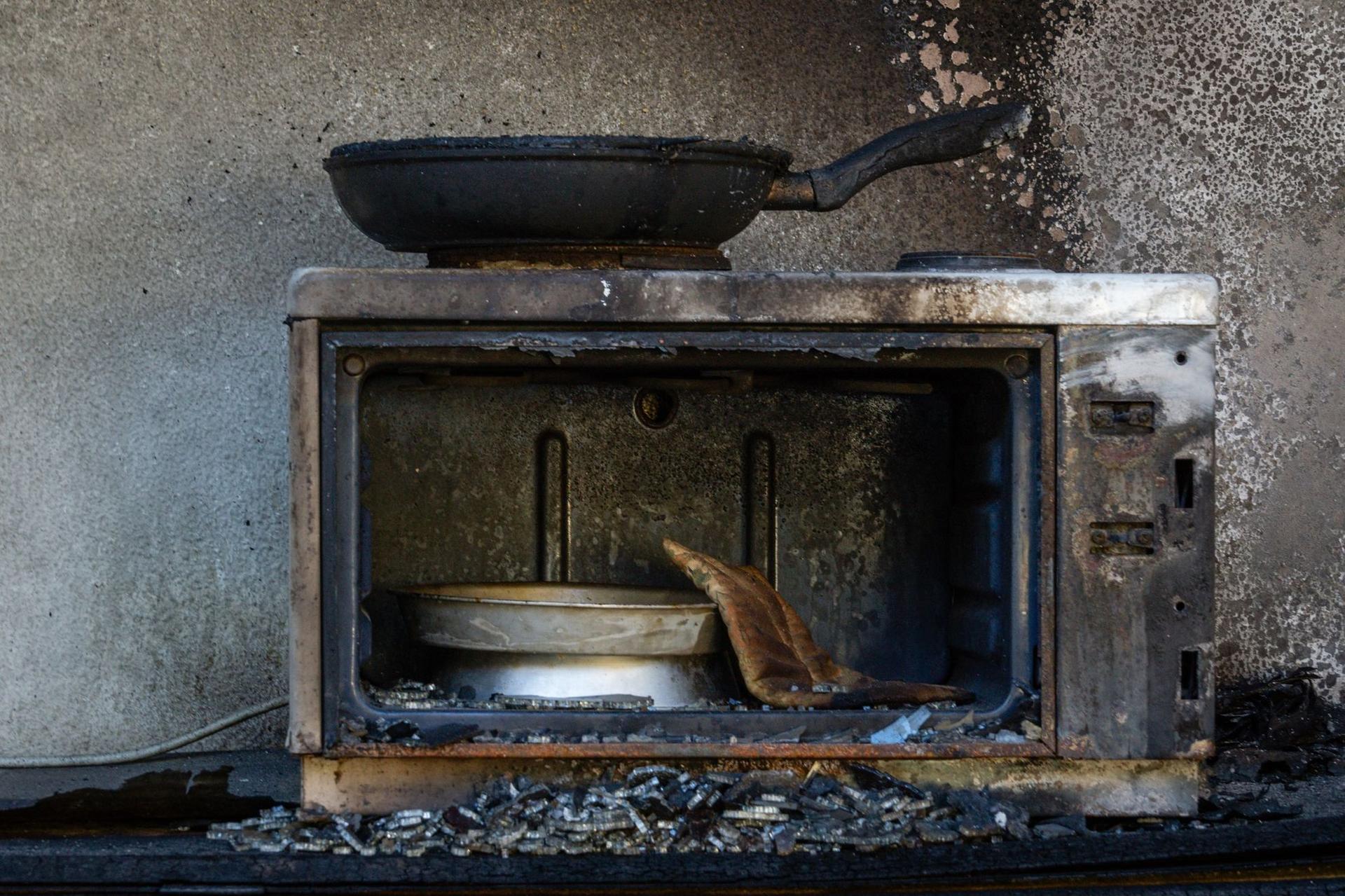
Photo: Ioana Epure
"This is the Greek reality. We don't live; we survive. As a tourist, you see the sun and the sea. But if you truly live here, sometimes it’s a nightmare. And the worst part is the lack of accountability. Who is responsible for this?" she adds, gesturing around her.
With a resigned sigh, Marilena picks up her bucket again and returns to work.
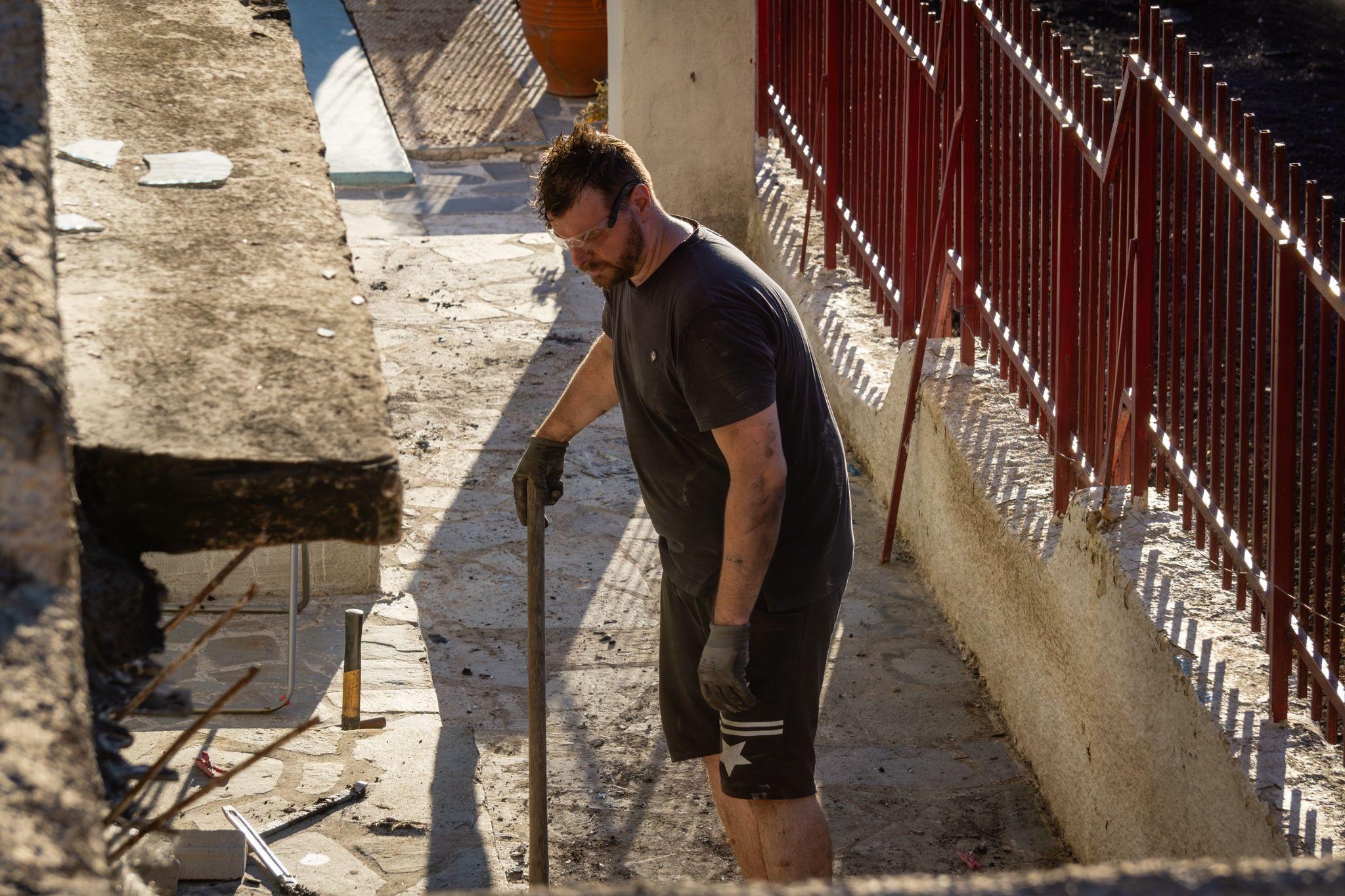
Photo: Ioana Epure
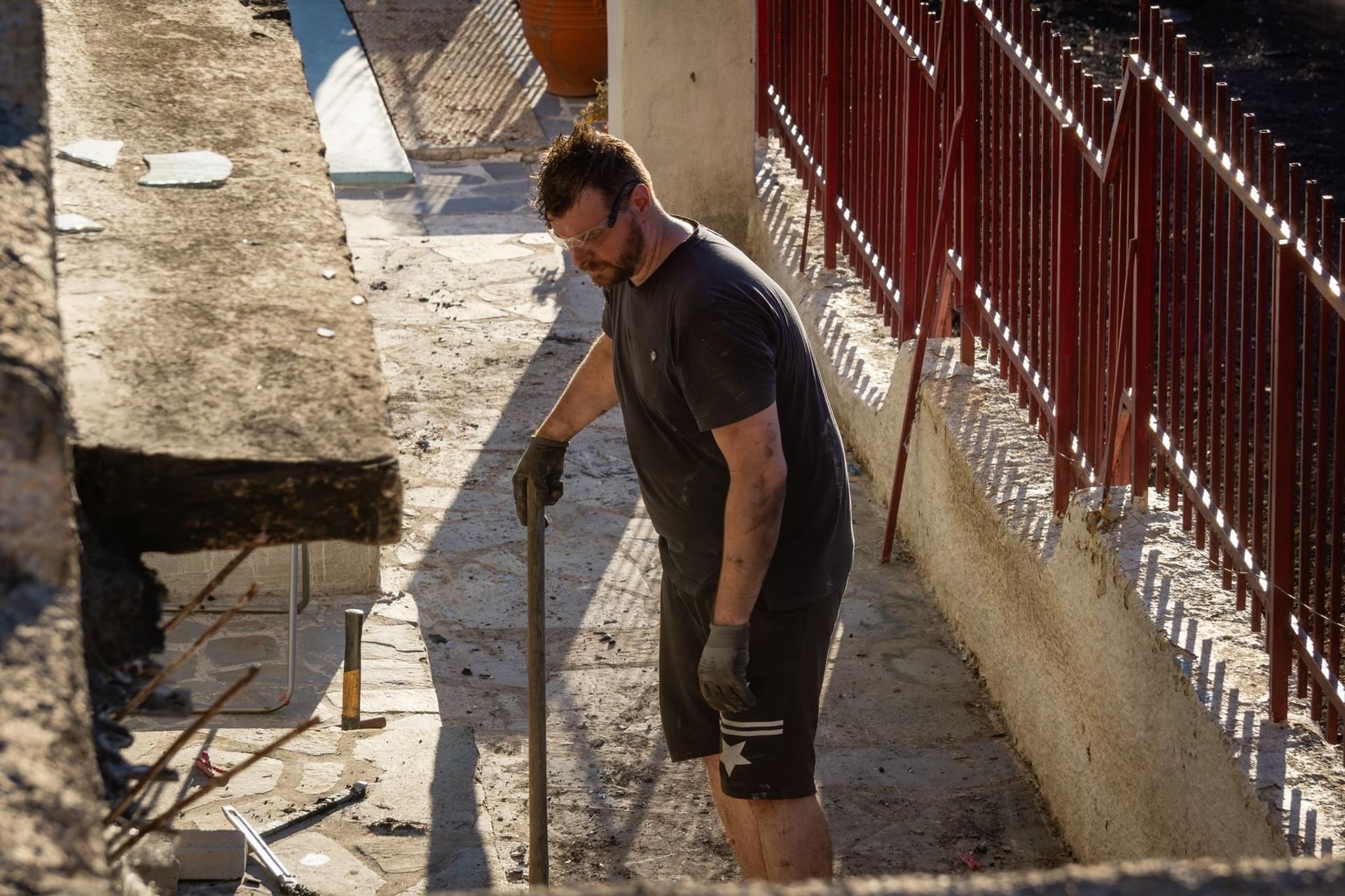
Photo: Ioana Epure
What do you do after a fire has ravaged your home? How do you start to rebuild?
First, you clean up, clearing away the charred remnants of your life – fragments of documents, shoes, clothes, and appliances that now look like something out of a post-apocalyptic movie rather than a home near Athens. Then, you start scrubbing the soot from the walls, using a cloth and water from a bucket.
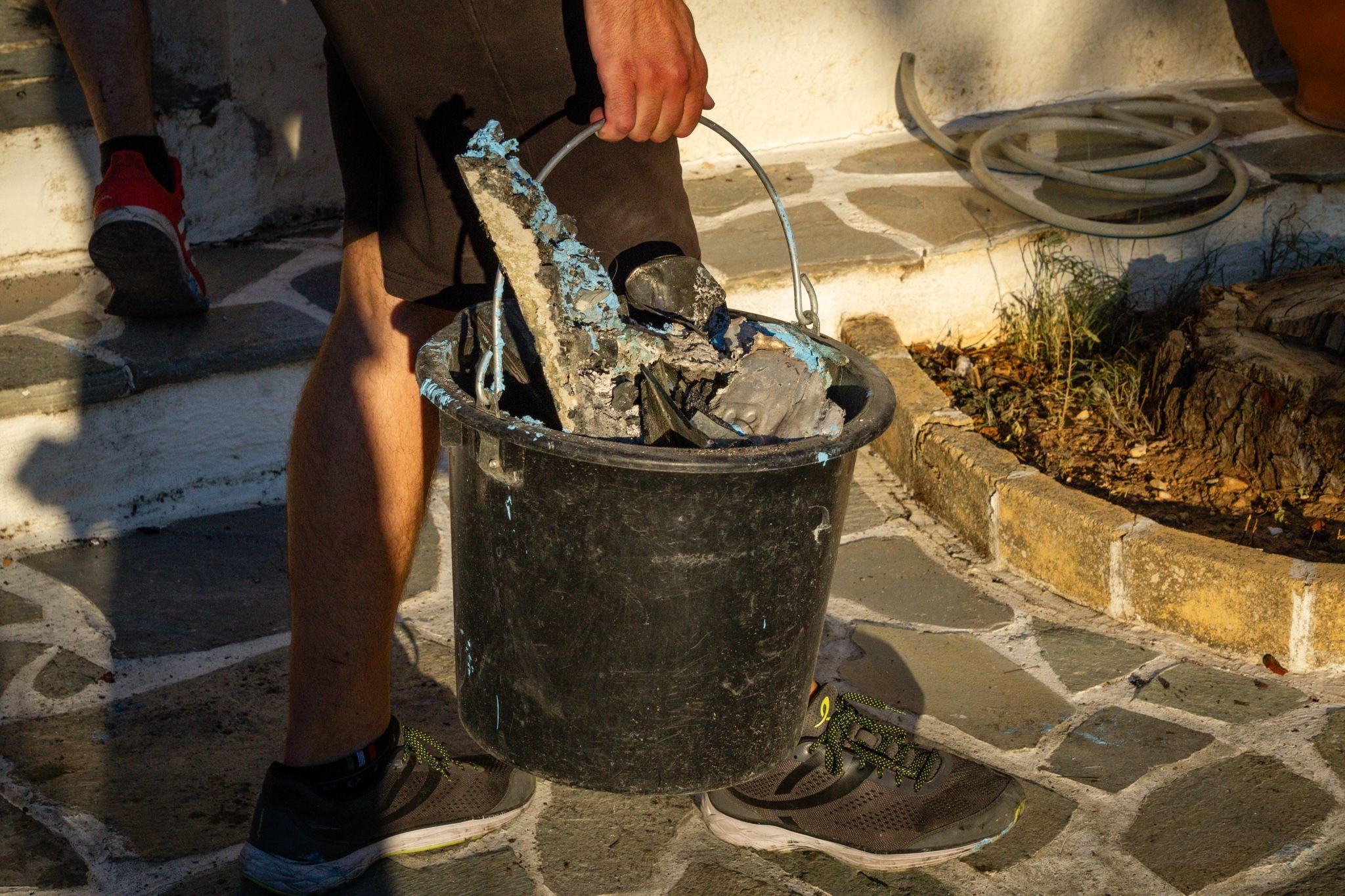
Photo: Ioana Epure
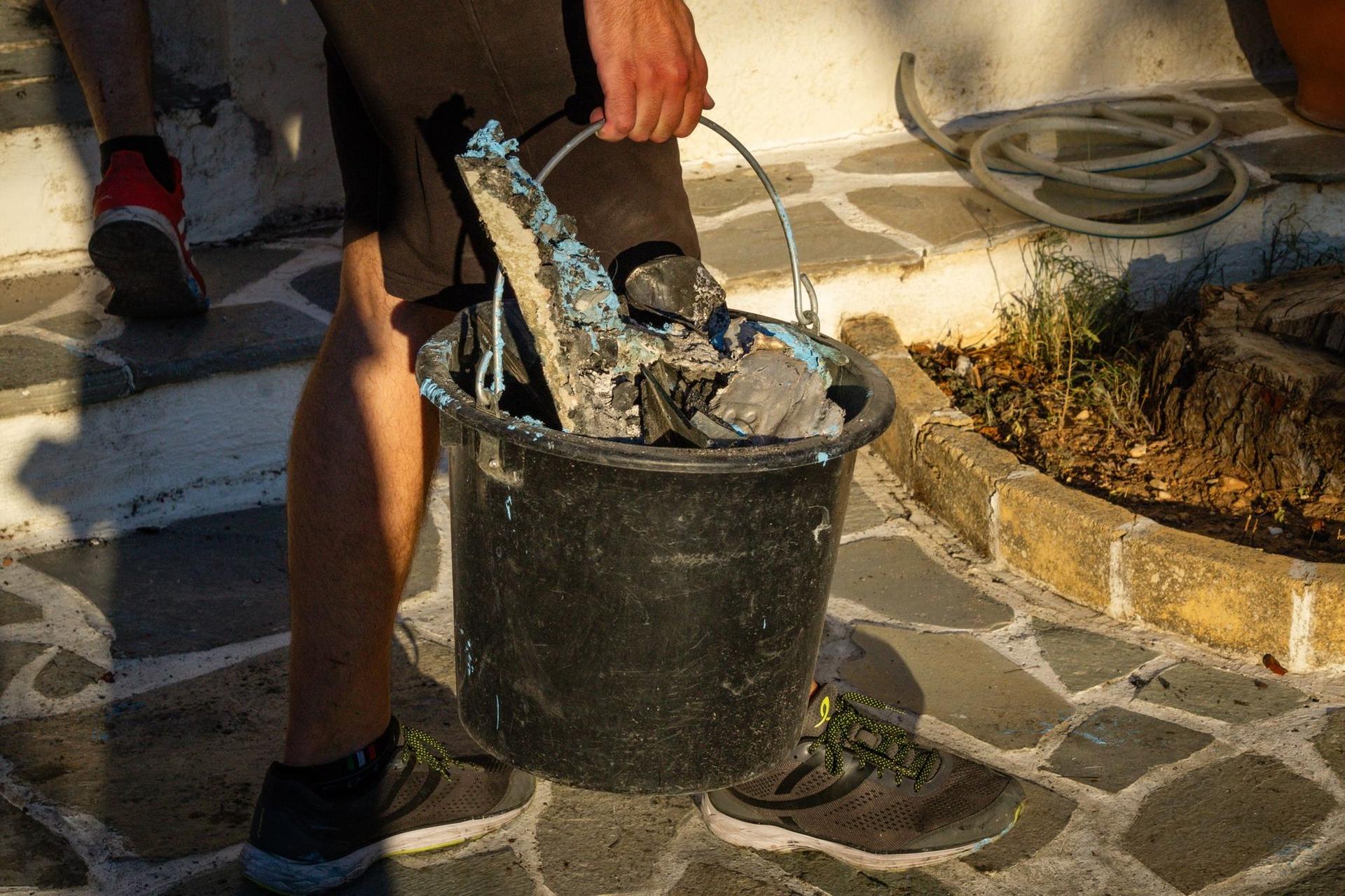
Photo: Ioana Epure
"When my parents were building the second floor of the house, I was playing on the ground floor," Iannis recalls as he wipes down the walls. He, his partner Marilena, and his brother Nikos have all begun the daunting task of repairing their parents' home while their ailing father rests in the upstairs rooms.
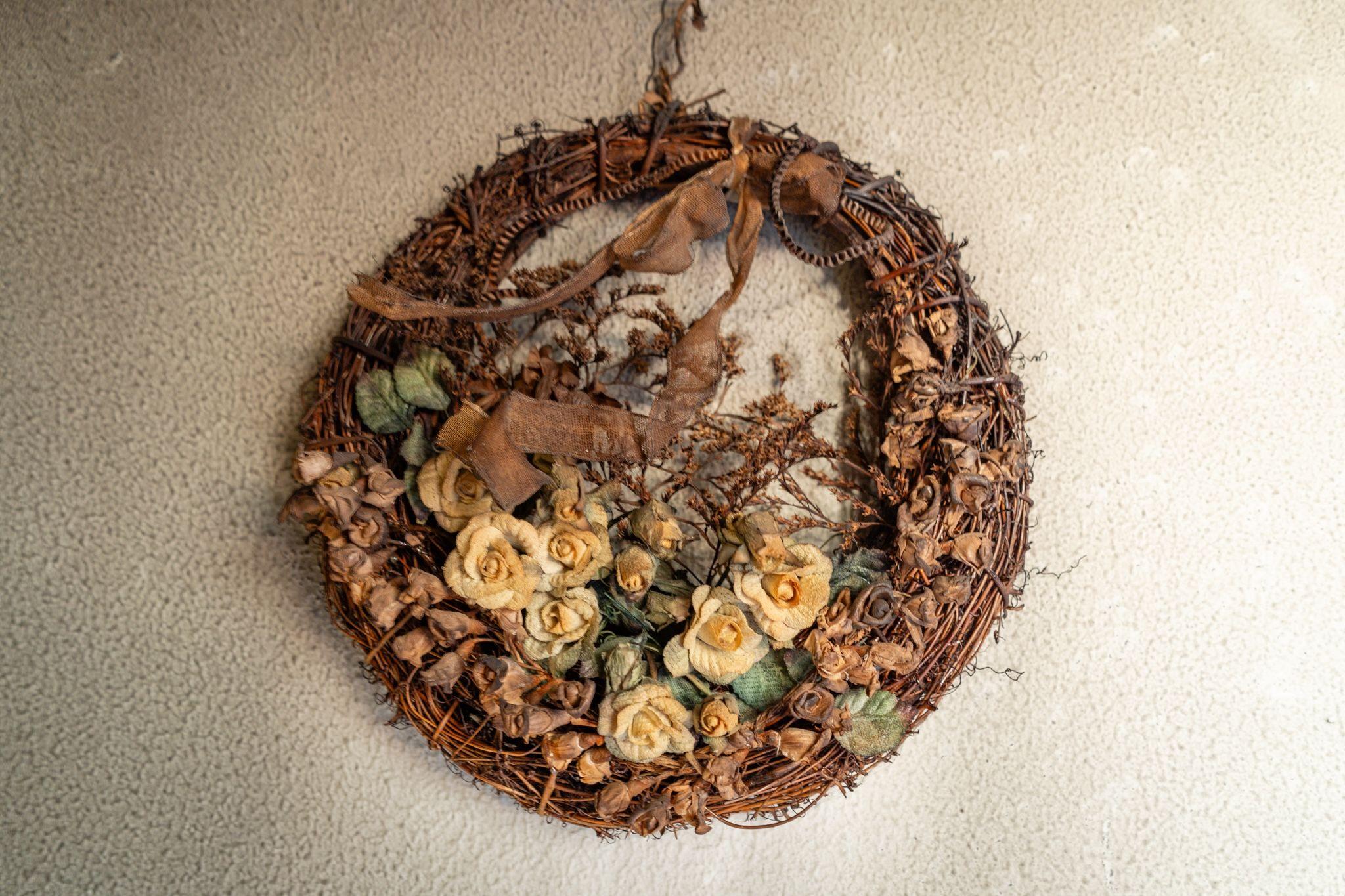
Photo: Ioana Epure
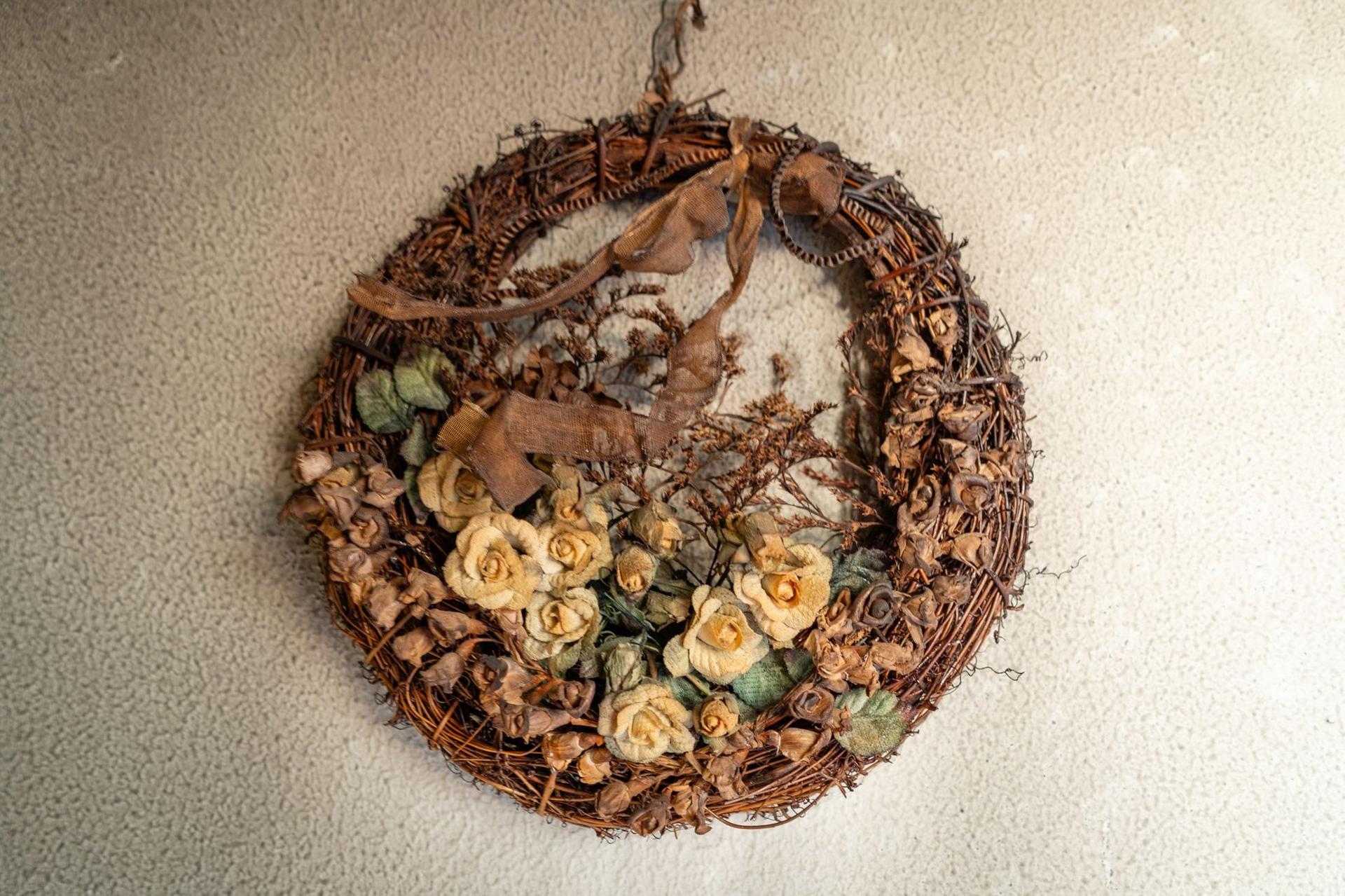
Photo: Ioana Epure
In the rooms untouched by the fire, they've managed to cram in the few belongings that could be saved. The haphazard way these items are arranged makes it seem as if the family is either planning a move or preparing for a spring cleaning. The permanence of home, the routine of daily life, has vanished.
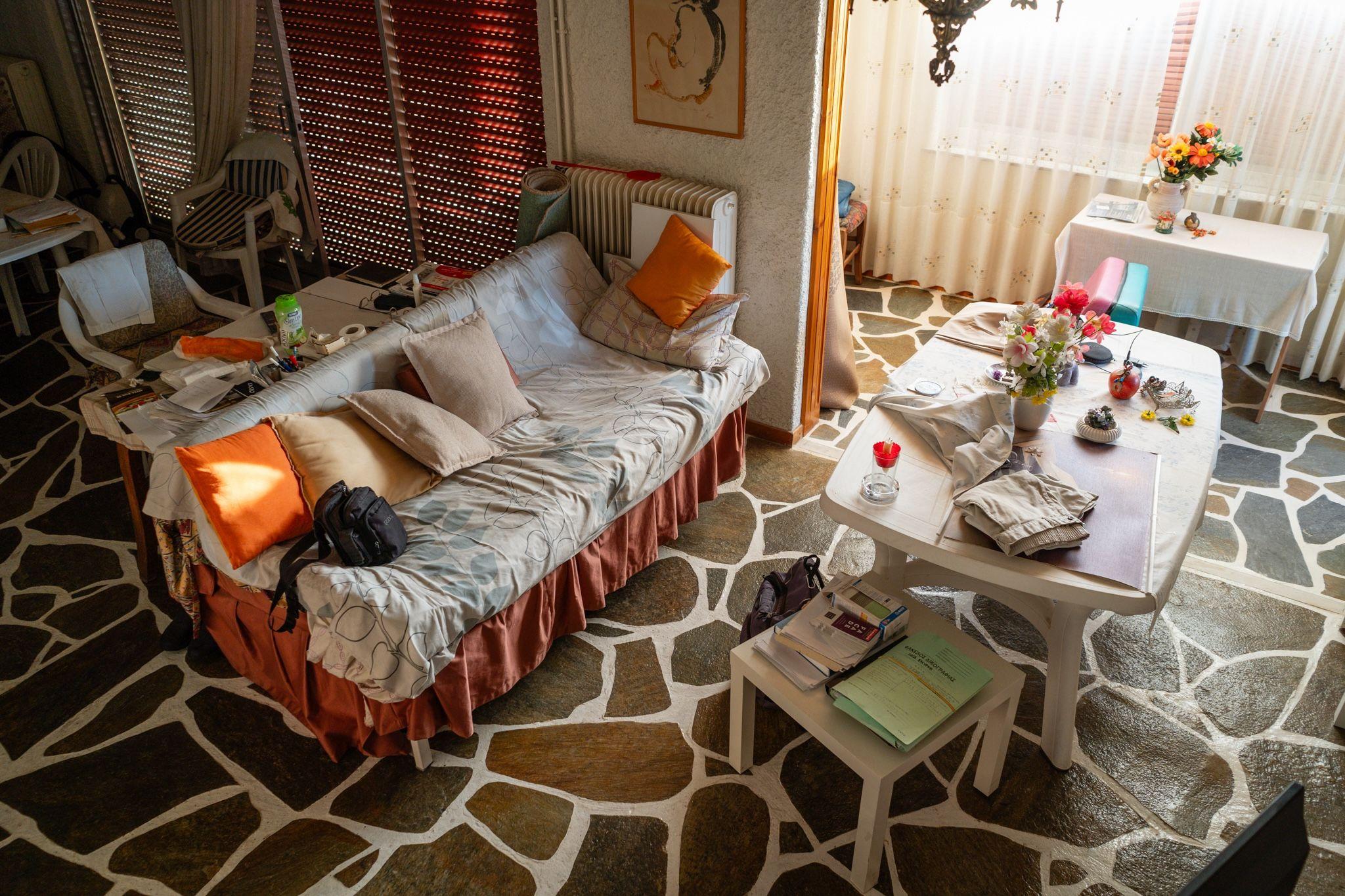
Photo: Ioana Epure
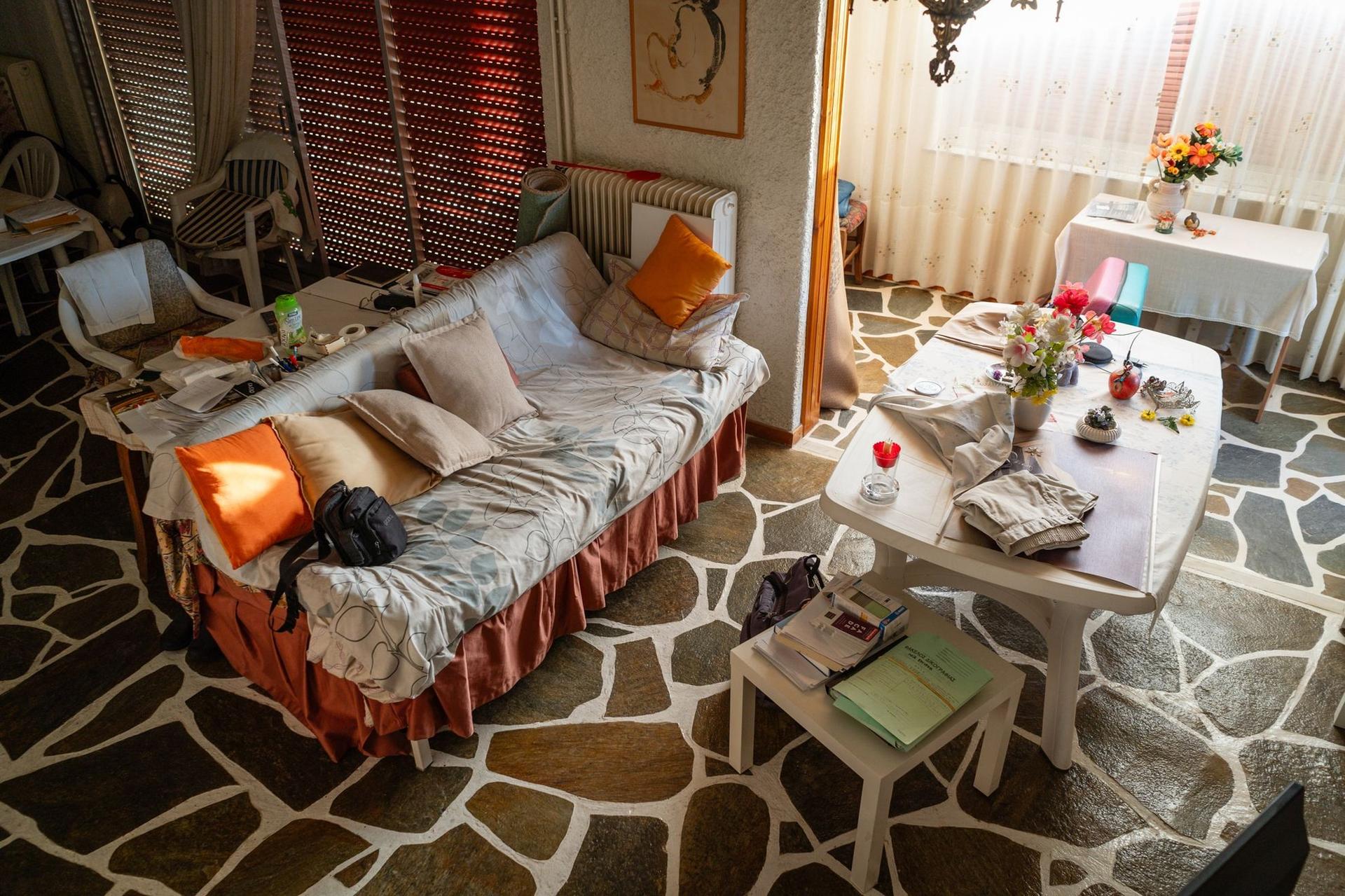
Photo: Ioana Epure
"In the last five years, Attica has burned multiple times around the suburbs. Tell me, is there any plan for fire protection? Are we ever really protected? Do we pay taxes? Yes, we do. So where's the protection from the state?" Marilena asks rhetorically.
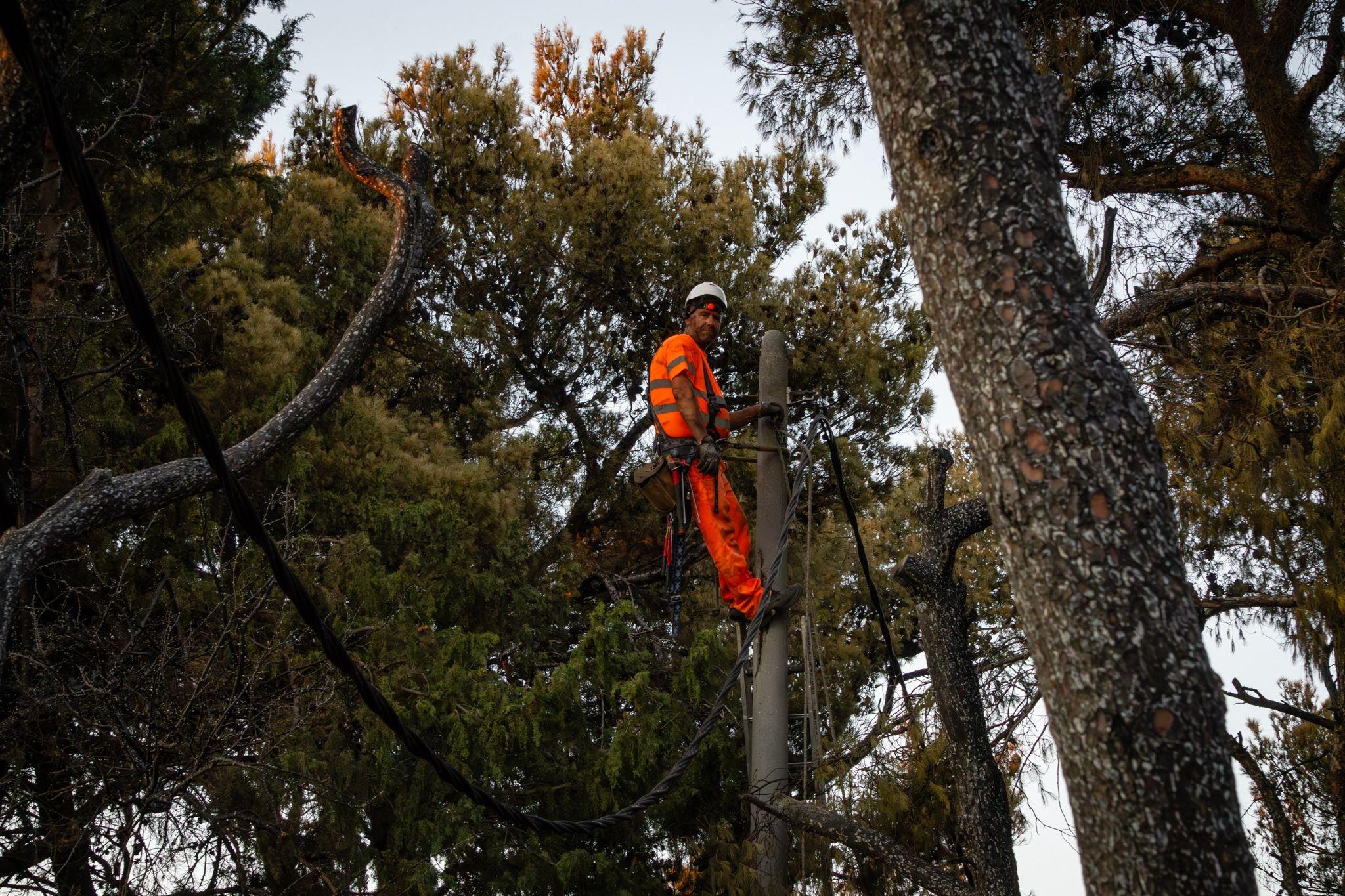
Photo: Ioana Epure
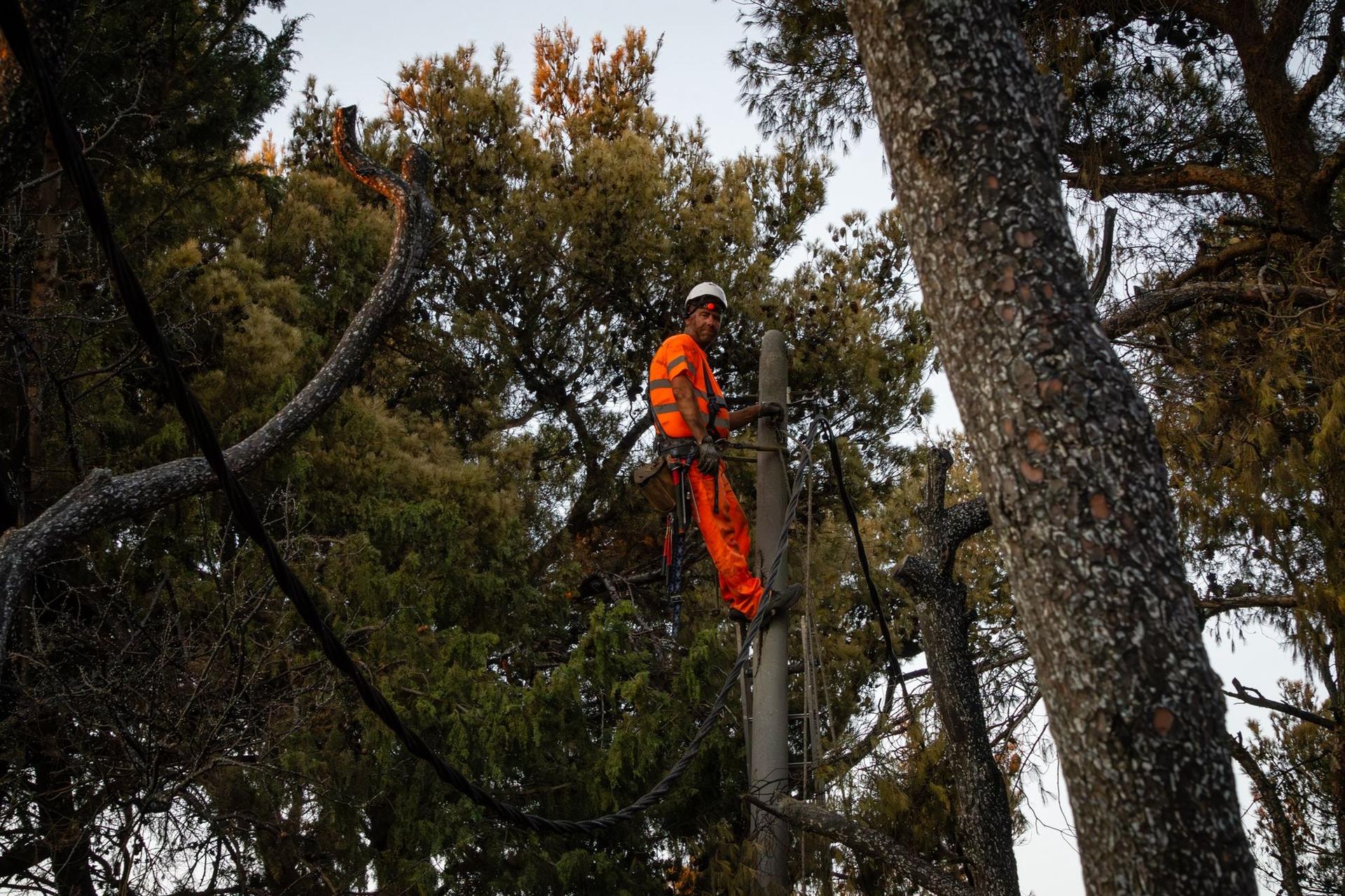
Photo: Ioana Epure
On a nearby street, a chainsaw cuts down burnt tree branches, and a team from ΔΕΔΔΗΕ removes the burned cables and installs new ones.
"The power is back!" someone yells in the neighborhood later, like a delayed echo.
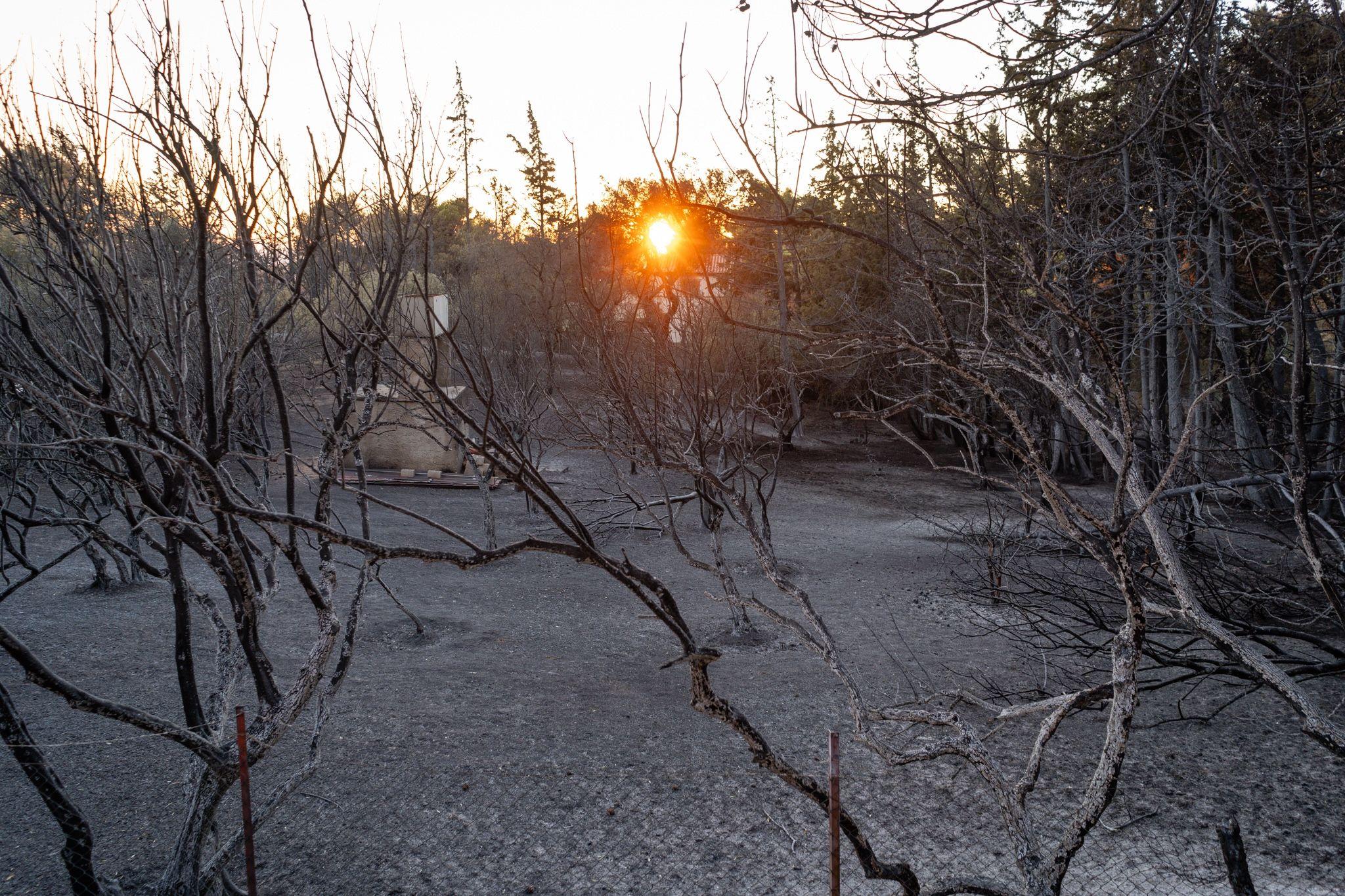
Photo: Ioana Epure
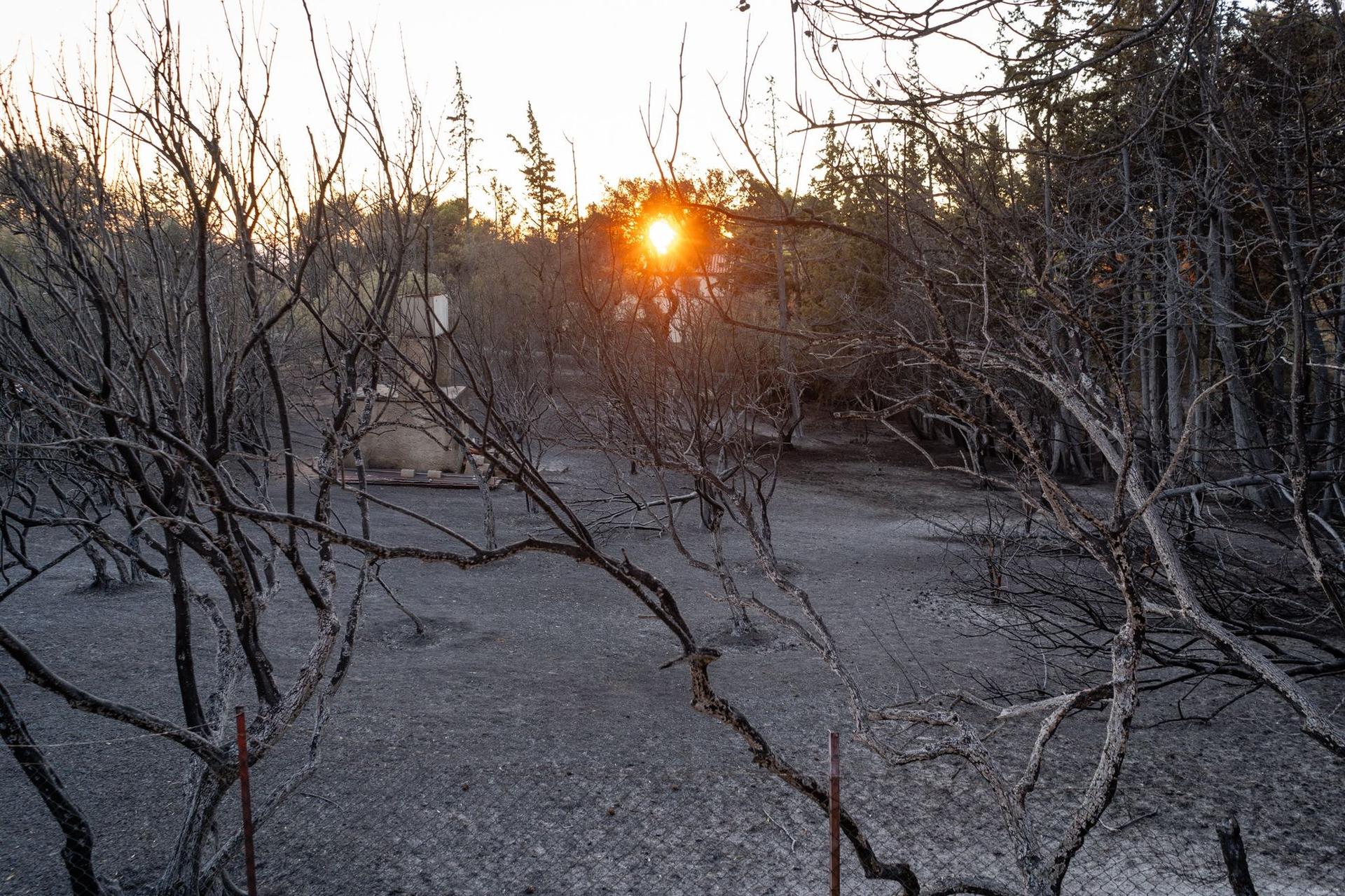
Photo: Ioana Epure
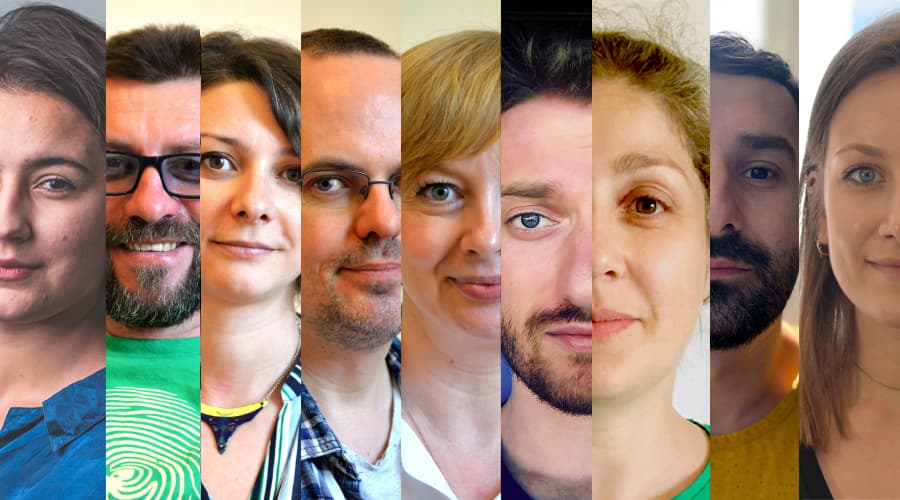
Avem nevoie de ajutorul tău!
Mulți ne citesc, puțini ne susțin. Asta e realitatea. Dar jurnalismul independent și de serviciu public nu se face cu aer, nici cu încurajări, și mai ales nici cu bani de la partide, politicieni sau industriile care creează dependență. Se face, în primul rând, cu bani de la cititori, adică de cei care sunt informați corect, cu mari eforturi, de puținii jurnaliști corecți care au mai rămas în România.
De aceea, este vital pentru noi să fim susținuți de cititorii noștri.
Dacă ne susții cu o sumă mică pe lună sau prin redirecționarea a 3.5% din impozitul tău pe venit, noi vom putea să-ți oferim în continuare jurnalism independent, onest, care merge în profunzime, să ne continuăm lupta contra corupției, plagiatelor, dezinformării, poluării, să facem reportaje imersive despre România reală și să scriem despre oamenii care o transformă în bine. Să dăm zgomotul la o parte și să-ți arătăm ce merită cu adevărat știut din ce se întâmplă în jur.
Ne poți ajuta chiar acum. Orice sumă contează, dar faptul că devii și rămâi abonat PressOne face toată diferența. Poți folosi direct caseta de mai jos sau accesa pagina Susține pentru alte modalități în care ne poți sprijini.
Vrei să ne ajuți? Orice sumă contează.
Share this

